PANDEMIC TREATY
Never before in the history of mankind has an organization openly plotted a coup against the sovereignty and health freedom of every human on earth.
Last updated: June 3, 2022
CLICK HERE to learn what happened at the World Health Assembly.
SHARE THIS LINK: http://StopTheWHO.com
#StopTheTreaty #StopTheWHO
The World Health Organization (WHO) is currently negotiating an international treaty that seeks to give the WHO more legal authority over your personal health choices, rights and freedoms. This is a VERY important issue. Please take the time to review this information and share it with everyone you possibly can.
NOTE:
I realize that this is a very long article. I have organized this article into 12 sections.
Key Takeaways
Schedule
What might be included in the “treaty”?
Opposition to the “Pandemic Treaty”
Call To Action
WHO Propaganda
International Health Regulations
The WHO Constitution
Money
Timeline
Upcoming Events
Author’s Opinion (The People’s Treaty)
This battle against biomedical fascism can only be won if large numbers of people learn what the World Health Organization is attempting to do and raise their voices in opposition to it A.S.A.P.
Please watch the videos below…
https://www.bitchute.com/video/jelwAdc9Myjf/
https://rumble.com/v16rb35-shabnam-palesa-mohamed.html
https://www.bitchute.com/video/5hTfoenvFQvJ/
HERE IS JUST ONE OF MANY RECOMMENDATIONS
1. Authorize a Governing Body
Authorize one or more agencies to coordinate pandemic prevention preparedness and response globally - across regions, countries and subnational jurisdictions.
2. Prepare and Respond
Give the global public health system - and its governing agency or agencies - the capabilities to flexibly and rapidly respond to a range of possible public health security threats and scenarios.
3. Single Authoritative Source of Information
One agency must be designated to be the singular authoritative source for information, data and technical assistance and to communicate a clear and compelling message to the world.
4. Measure Progress
Build the capacity to objectively evaluate countries on their proress in achieving requirements and the capability to remediate identified deficiencies.
5. Mechanisms to Enhance Compliance with International Agreements
Equip a pandemic prevention, preparedness and response governing body (or bodies) with appropriate enforcement mechanisms. These may include substantial incentives for countries to cooperate and/or sanctions for noncompliance.
6. Protect Governance Structure from Political Pressure
The governing body (or bodies) should be autonomous, with the freedom of self-governance and decision-making processes that are resistant to undue political pressures.
7. Sustainable Funding
Global public health efforts have never been adequately funded. global pandemic prevention agencies must have sovereign control of sustainable financial resources and enduring, annual funding to:
Lead globally all stages of infectious disease containment - especially prevention-related activities to prepare and respond to outbreaks before they became pandemics.
Build within-country public health core capacities
Contingencies for possible emergencies in the future
Sustainable and independent financing could be achieved through a combination of compulsory and voluntary member state contributions; taxes on global private industry or international trade; and/or a permanent endowment from philanthropies, private companies and countries.
8. Ensure Representation and Accountability for All Nations
Ensure the governing framework represents all countries and other relevant nonstate stakeholders and is highly transparent and accountable.
9. Involve all Parts of Society
At all levels of governance and action, involve multiple sectors, including national governments, the private sector, local governments and civil society.
10. Insure Responsibility
Ensure that individual countries understand the threat that infectious disease pandemics pose, take responsibility, are committed to these efforts and agree to fully comply and collaborate for the common good.
https://gphcpanel.org/recommendations/
KEY TAKEAWAYS:
The World Health Organization wants to control the way YOU manage YOUR health.
The WHO is attempting to grab even more power over your life. It is seeking to greatly expand its ability to control the entire world’s response to the next pandemic far beyond its current limited legal authority. The WHO wants to do more than merely advise countries. It wants complete control.
The WHO seeks to enforce an authoritarian, one size fits all, “One Health” approach to world health that is controlled by them and them alone.
The WHO is also seeking to greatly expand its financial resources and yearly budget.
This is not just about U.S. The effort must be worldwide. As of June 1, 2022, the “Pandemic Treaty” has not yet been drafted. NOW is the time to make your voices heard. We must ACTIVELY work to prevent these treaty negotiations from infringing upon the rights and freedoms of the entire world. Our voices must be heard. Our opinions must be considered. Our rights must be respected.
The negotiations toward this “treaty” are being controlled by bureaucrats, politicians, lawyers, public health officials, non-government organizations and pharmaceutical representatives who want to place themselves in control of determining the future of the world’s “health.”
The input of independent minded doctors, nurses, scientists and health professionals who actually saved millions of human lives is being completely ignored.
The opinions and desires of “We The People” are being ignored.
As an international treaty, the WHO pandemic pact could be legally binding ABOVE the Constitution of the United States and thus it would infringe upon our rights and limit our freedoms. For countries around the world (and their internal states and provinces), this legally binding agreement would override their individual constitutions and pandemic response strategies.
The United States is a “co-sponsor” of the current negotiations but it is NOT a member of the working group that is guiding the process. (CLICK HERE)
The International Negotiating Body (INB) is led by delegates from six countries, representing the world's main regions - Co-chairs Ms. Precious Matsoso (South Africa) and Mr. Roland Driece (the Netherlands), Ambassador Tovar da Silva Nunes (Brazil), Mr. Ahmed Salama Soliman (Egypt), Mr. Kazuho Taguchi (Japan) and Dr. Viroj Tangcharoensathien (Thailand)
A list of delegates to the Special Session of the World Health Assembly can be found HERE.
The Secretary of Health and Human Services (Xavier Becerra) leads the U.S. delegation to the World Health Assembly. Share your opinions with him directly: Xavier.Becerra@HHS.gov Twitter: @SecBecerra
We owe it to future generations to protect their sovereignty and their health freedoms. We must demand and ensure that the United States’ delegation to the WHO works to maintain the sovereignty of the people of the United States and maintain our health freedoms.
Instead of allowing centralized, authoritarian, dictatorial, biomedical fascism to take over and control our lives, we must ACTIVELY work to insist upon health freedom for everyone on earth.
A motherlode of documents are available via these links: IHR, IPPPR, Governing Pandemics, WGPR, INB, WHASS, WHO Contributors and Non-State Actors.
Click on the hashtag to learn more: #StopTheTreaty
Contact James Roguski at 310-619-3055 if you want to help oppose the “Pandemic Treaty” or if you have any questions. Instead, I propose that the people of the world support “The People’s Treaty.”
The scheduled time for public comment has been cancelled by the WHO.
We must ACTIVELY work to prevent these treaty negotiations from infringing upon the rights and freedoms of the entire world. Our voices must be heard. Our opinions must be considered. Our rights must be respected.
THE WHO’S PLAN FOR THE FUTURE:
The “Treaty on Pandemic Prevention and Preparedness” has NOT been finalized. On December 1, 2021 the WHO formally started the process towards drafting, negotiating and approving the treaty.
The scheduled time for public comment RIGHT NOW. We must ACTIVELY work to prevent these treaty negotiations from infringing upon the rights and freedoms of the entire world. Our voices must be heard. Our opinions must be considered. Our rights must be respected.
A meeting to discuss progress on a working draft of the treaty is scheduled to occur before August 1, 2022. The WHO’s stated goal is to reach a preliminary agreement at that time.
The intergovernmental negotiating body (INB), tasked with drafting and negotiating this Pandemic Treaty, will then deliver a progress report to the 76th World Health Assembly in May of 2023, with the aim of adopting the “instrument” by 2024.
CONTACT EACH AND EVERY ONE OF THE MEMBERS OF THE “INTERGOVERNMENTAL NEGOTIATING BODY”
Ms. Precious Matsoso (South Africa) CONTACT: MatsosoP@who.int
Mr. Roland Driece (the Netherlands) CONTACT: DrieceR@who.int Linkedin
Ambassador Tovar da Silva Nunes (Brazil) CONTACT: DaSilvaNunesT@who.int Linkedin
Mr. Ahmed Salama Soliman (Egypt) CONTACT: SolimanS@who.int
Mr. Kazuho Taguchi (Japan) CONTACT: TaguchiK@who.int
Dr. Viroj Tangcharoensathien (Thailand) CONTACT: TangcharoensathienV@who.int
Dr Viroj Tangcharoensathien:
International Health Policy Programme,
3rd Floor, National Security Reform Office Building,
oi Sataranasuk 6, Tiwanon Road, Nontaburi 11000, Thailand.
Email: viroj@ihpp.thaigov.net
http://www.crehs.lshtm.ac.uk/contact.html
Secretariat for the INB
Ms Jane Ellison, Executive Director, Governance and External Relations CONTACT: EllisonJ@who.int Twitter: @JaneEllison
Dr Jaouad Mahjour, Assistant Director General, Emergency Preparedness CONTACT: MahjourJ@who.int
Dr Timothy Armstrong, Director Governing Bodies CONTACT: ArmstrongT@who.int
Mr Steven Solomon, Principal Legal Officer CONTACT: SolomonS@who.int
Ms Gina Vea, Unit Head, Governance Unit CONTACT: VeaG@who.int Linkedin
Ms Anne Huvos, Unit Head, Pandemic Influenza Preparedness CONTACT: HuvosA@who.int
Dr Olla Shideed, Executive Officer, Emergency Preparedness CONTACT: ShideedO@who.int Linkedin
Mrs Paidamoyo Takaenzana, External Relations Officer, Governance Unit CONTACT: TakaenzanaP@who.int
Dr Claudia Nannini, Legal Officer CONTACT: NanniniC@who.int Linkedin
Mr Kenneth Piercy, Senior Legal Officer CONTACT: PiercyK@who.int Linkedin
Dr Carmen Savelli, External Relations Officer, Governance Unit CONTACT: SavelliC@who.int Linkedin
VOICE YOUR OPINION:
I strongly encourage you to send an email to the following people at least once per day until you get an acceptable response to your concerns over the canceling of the public comment period that had been scheduled for June 16-17, 2022 and the ongoing plans to draft a “pandemic” treaty while blatantly ignoring public opinion.
I doubt that you will receive an answer. If you do, please post it in the comments section below.
I suggest that you start out by sending a polite request for an explanation and then consider what your future responses should be.
ArmstrongT@who.int
DaSilvaNunesT@who.int
DrieceR@who.int
EllisonJ@who.int
HuvosA@who.int
MahjourJ@who.int
MatsosoP@who.int
NanniniC@who.int
PiercyK@who.int
SavelliC@who.int
ShideedO@who.int
SolimanS@who.int
SolomonS@who.int
TaguchiK@who.int
TakaenzanaP@who.int
TangcharoensathienV@who.int
VeaG@who.int
viroj@ihpp.thaigov.net
CONTACT YOUR CONGRESSIONAL REPRESENTATIVE AND SENATORS
https://www.congress.gov/members/find-your-member
ADDITIONAL OPTIONS: Senate and House
The Congressional email system may not accept hyperlinks, so just tell them to visit “STOP THE WHO DOT COM”
Share this information with everyone you possibly can, including members of the mainstream and alternative media via text, email, social media, video and every other possible way.
http://StopTheWHO.com
REQUEST:
When you send an email(s) to the above people, please copy it before you send it and post it in the comment section below.
Please watch the video below…
https://www.bitchute.com/video/jelwAdc9Myjf/
The proposed treaty could legally empower the WHO to do the following:
Change the definition of a pandemic (again) in order to declare unjustified pandemics. The WHO could declare almost anything to be a pandemic - heart disease, cancer, diabetes, mental illness, etc.
Impose lockdowns worldwide.
Enforce expensive, unsafe, and ineffective treatments against the will of the individual people of the world.
Implement universal vaccination mandates and digital version of the International Certificate of Vaccination and Prophylaxis for use as a vaccine passport.
Develop norms and standards for digital technology applications relevant to international travel with digital technologies for contact tracing in the international context, as well as options for the digitalization of all health forms.
Develop surveillance systems that would link into each country's national health system.
Develop predictive mechanisms for assessing preparedness, including simulations and exercises that test and demonstrate the capacity and agility of health emergency preparedness systems.
Prevention and management of zoonotic risks as part of a “One Health” approach.
Declare a ban on wildlife (wet) markets.
Identify, predict and detect the emergence of pathogens with pandemic potential based on a “One Health” approach that integrates animal and human health.
Ensure that national and local legislation on emergency preparedness and response supports, and is consistent with, International Health Regulations.
Give incentives for countries to report new viruses or variants, keeping up the ongoing fear. States that detect and report a new virus could also receive immediate support, which might involve shipments of medical equipment from a global stockpile.
Promote novel vaccines, therapeutics, diagnostics and non-pharmaceutical interventions for health emergencies, including capacity for testing, scaled manufacturing and distribution.
Promote untested medicines and vaccines developed against new viruses that only feed the profits of drug companies.
Mandate the sharing of data and genome sequences of emerging viruses.
Enforce vaccine distribution.
Institute guidelines on how each member country would pay fees to the World Health Organization in addition to the annual membership fees each member country is already paying.
On June 1, 2022, the Intergovernmental Negotiating Body published the following details:
SOURCE:
https://apps.who.int/gb/inb/pdf_files/inb1/A_INB1_11-en.pdf
ADDITIONAL INFORMATION:
The proposed “treaty” has not yet been drafted. That process of drafting the “treaty” is happening right now!
The WHO’s Working Group on Strengthening WHO Preparedness and Response to Health Emergencies (WGPR) published their top recommendations on February 18, 2022.
https://apps.who.int/gb/wgpr/pdf_files/wgpr7/A_WGPR7_3-en.pdf
Also, the Independent Panel for Pandemic Preparedness and Response (IPPPR) published their recommendations back in May 2021. Please review their recommendations on pages 64-70 in the document below.
The World Together: Establishment of an intergovernmental negotiating body to strengthen pandemic prevention, preparedness and response
https://apps.who.int/gb/ebwha/pdf_files/WHASSA2/SSA2(5)-en.pdf
On June 1, 2022, the Intergovernmental Negotiating Body published the following details:
SOURCE:
https://apps.who.int/gb/inb/pdf_files/inb1/A_INB1_11-en.pdf
PLEASE TAKE THE TIME TO UNDERSTAND HOW DANGEROUS THIS IS.
THIS IS A VEILED ATTEMPT TO “LEGALIZE” CENTRALIZED PHARMACEUTICAL FASCISM UNDER THE GUISE OF PANDEMIC PREVENTION AND PREPAREDNESS AND RESPONSE.
The World Health Organization wants sovereign nations to sign a treaty that would grant additional legal authority to the WHO which would enable them to force their “One Health” decisions upon every country of the world.
In addition, the WHO wants more money ($10-$31 billion dollars per year!)
The WHO’s priority is NOT public health. The WHO’s real priority is capturing more power and money for itself and its corporate and Non-Governmental Organization accomplices.
OPPOSITION TO THE PANDEMIC TREATY:
Please watch the videos below…
Dr. Vincent Carroll in Dublin warning the public about the WHO’s pandemic treaty
https://www.bitchute.com/video/dJtoeSRaXbbb/
Explained: The World Health Organization’s controversial “pandemic Treaty”
Backup video:
https://www.bitchute.com/video/c1TQDBcp2CGh/
The WHO’s new pandemic treaty, what you need to know
https://www.bitchute.com/video/ZRxVeU91dD5a/
Dr. Jessica Rose | Why We Must Shut Down The WHO International Pandemic Treaty
https://www.bitchute.com/video/6dxLcxhKNvqL/
First Open Letter on the WHO’s Pandemic Treaty
https://worldcouncilforhealth.org/news/2022/03/pandemic-treaty/45591/
https://rokfin.com/post/79477/The-WHO-Wants-To-Implement-A-National-Biomedical-Treaty
EMERGENCY: Doctor Exposes WHO Blueprint For Global Healthcare Control
https://rumble.com/vvbuvf-emergency-doctor-exposes-who-blueprint-for-global-healthcare-control.html
WHO's "Global Pandemic Treaty" is Global Biomedical Fascism
https://www.bitchute.com/video/bE8SGCFsYXk/
National Sovereignty vs Pandemic Treaty
https://www.bitchute.com/video/jygpE1ajKATG/
What Drives Me Crazy:
https://rumble.com/vy94n3-crazy-toms-what-drives-me-crazy-for-3-23-2022-sick-treaty-coincidence.html
A Pandemic Treaty for us, not them
https://www.brighteon.com/0b3e7e57-f554-4b12-96e4-6a0d559d22c2

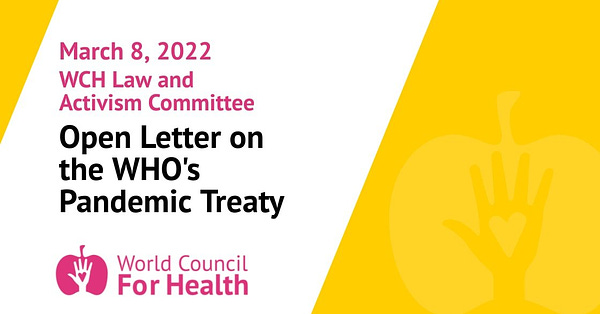

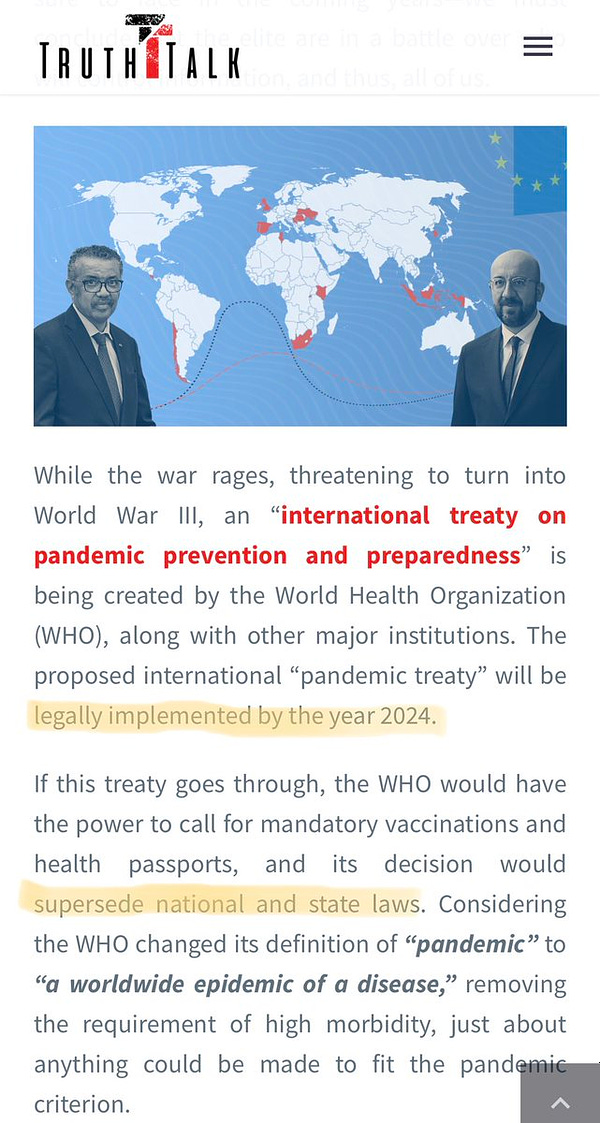

INDIA:
Why India Must Speak Up Against the New Pandemic Treaty Proposal at the WHO
AIM:
https://AwakenIndiaMovement.com/
https://twitter.com/awakenindiamvmt/
Wet Markets
Believe it or not, the WHO is still promoting this absurd story:
According to the most widely accepted theory, the COVID-19 pandemic began with the transmission of the SARS-CoV-2 virus from an animal to humans in a wildlife market in China.
Among measures the EU wants to be included in the treaty is a gradual shutdown of wildlife markets, the EU official said.
Any organization that is still this confused and/or deceitful must not be empowered further. It must be disbanded.
IRELAND
https://www.change.org/o/jacqui_sharkey_odonnell_sweeney_solicitors
SOUTH AFRICA:

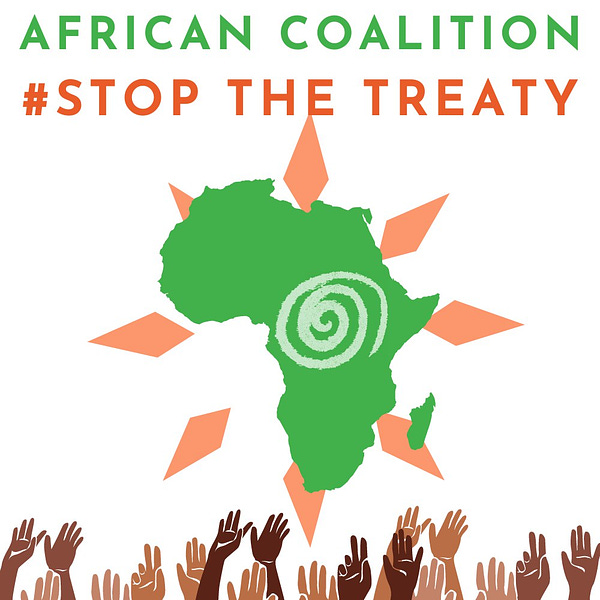


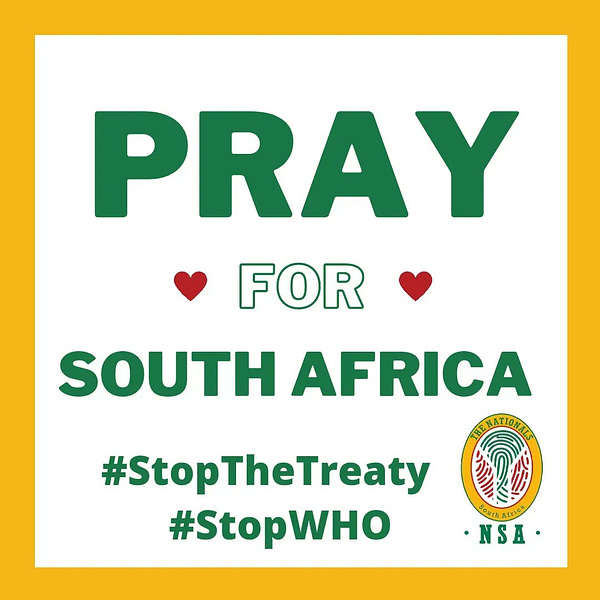

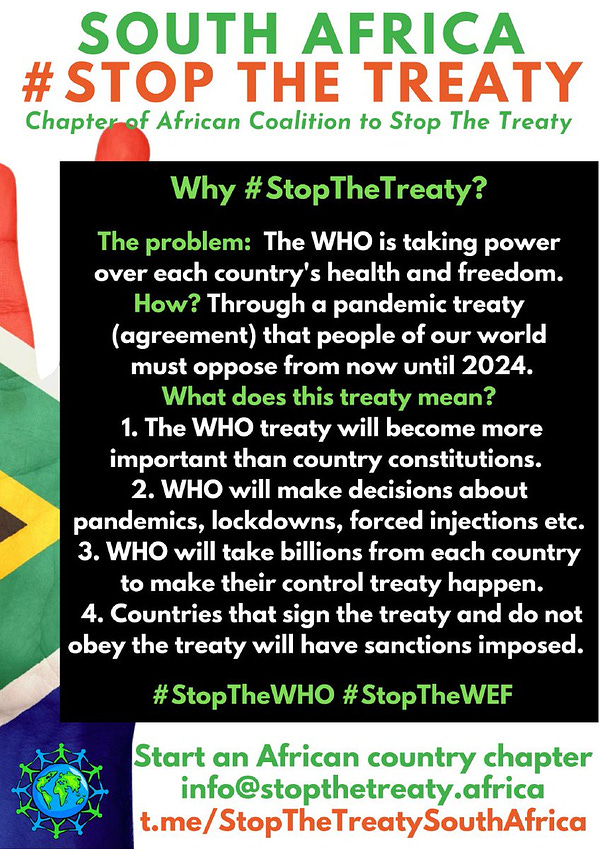
DELEGATES TO THE WORLD HEALTH ASSEMBLY
Find the delegates to the World Health Assembly from your country in the document below.
https://apps.who.int/gb/ebwha/pdf_files/WHASSA2/SSA2_DIV1REV1-en.pdf
NOTE: The details regarding who is supposed to “represent” We the People” at the World Health Assembly (and how to contact them) is maddeningly difficult to obtain. I realize that the PDF above includes a list of delegates to the special session that occurred in November 2021 and that the delegates that attend the 75th World Health Assembly will likely be somewhat different. If you would like to help research this information, that would be very much appreciated! 310-619-3055
SIGN THE PETITION:
https://standforhealthfreedom.com/action/who
WHO PROPAGANDA VIDEOS:
https://newsroom.consilium.europa.eu/embed/230660
Pandemic Preparedness Treaty
What is the global pandemic treaty?
GOVERNING PANDEMICS PROPAGANDA DOCUMENTS:
https://www.governingpandemics.org/initiative-materials
https://www.governingpandemics.org/who-un-documents
https://www.governingpandemics.org/academicanalysis
https://www.governingpandemics.org/other-resources
WHO PROPAGANDA INFOGRAPHICS:
Infographic - Towards an international treaty on pandemics
https://www.consilium.europa.eu/en/infographics/towards-an-international-treaty-on-pandemics/
Infographic - 10 incentives and benefits of an international treaty on pandemics
https://www.consilium.europa.eu/en/infographics/10-benefits-pandemic-treaty/
INTERNATIONAL HEALTH REGULATIONS (IHR)
MOST PEOPLE HAVE NEVER HEARD OF THE IHR.
The International Health Regulations (IHR) are legally binding under international law.
The WHO is seeking to dramatically increase their control over the world’s health by attempting to steal the sovereignty of free people around the world in a blatant power grab through the drafting of an international treaty.
The International Health Regulations define countries' responsibilities when public health events can cross borders. These include advising the WHO immediately of health emergencies and of measures related to trade and travel.
The World Health Organization is a specialized agency of the United Nations. Currently, most pronouncements made by the WHO are merely advisory in nature and is not legally binding upon its members. HOWEVER, the International Health Regulations (IHR) agreed to in 2005 ARE legally binding. The updates of the current version were developed after the 2002 to 2003 SARS virus outbreak. Any subsequent changes to the IHR would also be legally binding upon the United States.
These legally binding regulations are operational for regional epidemics like the Ebola virus, but the WHO believes that they are not strong enough for a global pandemic like COVID-19. The WHO wants to expand and strengthen the International Health Regulations.
https://www.who.int/publications/i/item/9789241580496
The stated purpose of the International Health Regulations is to “avoid unnecessary interference with international traffic and trade.”
Article 2: Purpose and scope
The purpose and scope of these Regulations are to prevent, protect against, control and provide a public health response to the international spread of disease in ways that are commensurate with and restricted to public health risks, and which avoid unnecessary interference with international traffic and trade.
Article 3: Principles
The implementation of these Regulations shall be with full respect for the dignity, human rights and fundamental freedoms of persons.
NEWSPEAK:
By altering the definition of certain terminology, the United States has been in violation of the International Health Regulations continuously since January 19, 2017.
Most people are unaware of the manner in which common words and phrases are altered and redefined in law.
Please note that changes to a number of definitions were published in the Federal Register on January 19, 2017 – just one day before President Donald Trump was inaugurated.
Changes made on January 19, 2017 (pages 79-81): https://www.govinfo.gov/content/pkg/FR-2017-01-19/pdf/2017-00615.pdf
Definitions in the current United States Code: https://www.law.cornell.edu/cfr/text/42/70.1
The definition of an “ill person”:
International Health Regulations:
“ill person” means an individual suffering from or affected with a physical ailment that may pose a public health risk;
https://www.who.int/publications/i/item/9789241580496 (page 8)
Current United States Code:
“ill person” means an individual who:
(1) Has a fever (a measured temperature of 100.4 °F [38 °C] or greater, or feels warm to the touch, or gives a history of feeling feverish) accompanied by one or more of the following: Skin rash, difficulty breathing, persistent cough, decreased consciousness or confusion of recent onset, new unexplained bruising or bleeding (without previous injury), persistent diarrhea, persistent vomiting (other than air sickness), headache with stiff neck, appears obviously unwell; or
(2) Has a fever that has persisted for more than 48 hours; or
(3) Has symptoms or other indications of communicable disease, as the CDC may announce through posting of a notice in the Federal Register.
https://www.law.cornell.edu/cfr/text/42/70.1
Comment:
The definition of an “ill person” in the United States Code must be brought into alignment with the internationally accepted definition found in the International Health Regulations.
The definition of “Invasive”/”Non-Invasive”:
International Health Regulations:
“invasive” means the puncture or incision of the skin or insertion of an instrument or foreign material into the body or the examination of a body cavity. For the purposes of these Regulations, medical examination of the ear, nose and mouth, temperature assessment using an ear, oral or cutaneous thermometer, or thermal imaging; medical inspection; auscultation; external palpation; retinoscopy; external collection of urine, faeces or saliva samples; external measurement of blood pressure; and electrocardiography shall be considered to be non-invasive;
https://www.who.int/publications/i/item/9789241580496 (page 8)
Current United States Code:
Non-invasive means procedures conducted by an authorized public health worker (i.e., an individual with education and training in the field of public health) or another individual with suitable public health training and includes the visual examination of the ear, nose, and mouth; temperature assessments using an ear, oral, cutaneous, or noncontact thermometer, or thermal imaging; and other procedures not involving the puncture or incision of the skin or insertion of an instrument or foreign material into the body or a body cavity excluding the ear, nose, and mouth.
https://www.law.cornell.edu/cfr/text/42/70.1
Comment:
The definition of “non-invasive” found in the United States Code is in clear violation of the International Health Regulations and must be brought into alignment with the internationally agreed upon definition of “invasive” found in the International Health Regulations.
The insertion of nasal swabs to obtain bodily fluids for a RT-PCR “test” IS CLEARLY INVASIVE and is in violation of the International Health Regulations!
POWER GRAB:
Changes to the International Health Regulations that the WHO is drafting pose a DIRECT THREAT to the sovereignty and inalienable rights of people around the world. It would replace the WHO’s suffocating influence with additional “legal” authority.
The current version of the International Health Regulations limits the function of the WHO to an advisory capacity. Clearly the WHO would like to increase its legal authority to control world health.
Overview of legal, procedural opportunities and threats
https://rumble.com/vvfvbi-overview-of-legal-procedural-opportunities-and-threats.html
W.H.O. "PANDEMICS TREATY" [WORLD GOVERNMENT POWER GRAB 2022]
https://www.bitchute.com/video/OVfkg9YBDQYE/
DR. ASTRID STUCKELBERGER
https://www.astridstuckelberger.com/
https://t.me/s/Dr_Astrid_Stuckelberger
WHO Pandemic Treaty: The makings of a New World Order?
The foundation of a One-World Government?
Of concern, is the degree to which the World Health Organization will no longer be making recommendations to member countries but dictating to them. This is a point particularly canvased by Astrid Stuckelberger, a scientist at the Institute of Global Health of the Faculty of Medicine of the University of Geneva.
She is a former employee of WHO who has subsequently become a whistleblower. Her most recent statements released in March 2021 speak to the fact that the 194 member countries are not voting on whether they agree on the Pandemic Treaty; instead they are legally bound to concede to its framework. "This delegation [put together to draft the Pandemic Treaty] has been embedded in the Constitution of WHO, and is immediately approved by 194 member states, regardless of whether they adopt its principles. This delegation is legally binding according to the International Health Regulations," she says.
Furthermore, Stuckelberger warns that if the new Pandemic Treaty is adopted by member states, "this means that the WHO's Constitution (as per Article 19) will take precedence over each country's constitution during natural disasters or pandemics. In other words, the WHO will be dictating to other countries, no longer making recommendations," she says.
To this end she challenges society to ask themselves whether we should endow any single person or conglomerate of persons with such incredible amount of power without having them account to any kind of democratic responsibility and legitimacy, to any checks and balances to keep corruption in check."There remain concerns that a hastily established treaty drafting process may not adequately engage with civil society and community organisations, allowing states to slip back into the habit of “all-too-easily sidelining the international human rights framework".”
"To ensure the rights-based development of a prospective treaty, consultative processes guided by the right to participation are both necessary and required under international law; however, the ability of civil society to participate in the process of treaty deliberations and stakeholder consultations has thus far been severely limited."
https://www.bizcommunity.com/Article/196/148/225648.html
THE WHO CONSTITUTION
BASIC DOCUMENTS
Below are some important excerpts from the WHO Constitution.
Article 2
In order to achieve its objective, the functions of the Organization shall be:
(a) to act as the directing and co-ordinating authority on international health work;
(b) to establish and maintain effective collaboration with the United Nations, specialized agencies, governmental health administrations, professional groups and such other organizations as may be deemed appropriate;
(c) to assist Governments, upon request, in strengthening health services;
(d) to furnish appropriate technical assistance and, in emergencies, necessary aid upon the request or acceptance of Governments;
(e) to provide or assist in providing, upon the request of the United Nations, health services and facilities to special groups, such as the peoples of trust territories;
(f) to establish and maintain such administrative and technical services as may be required, including epidemiological and statistical services;
(g) to stimulate and advance work to eradicate epidemic, endemic and other diseases;
(h) to promote, in co-operation with other specialized agencies where necessary, the prevention of accidental injuries;
(i) to promote, in co-operation with other specialized agencies where necessary, the improvement of nutrition, housing, sanitation, recreation, economic or working conditions and other aspects of environmental hygiene;
(j) to promote co-operation among scientific and professional groups which contribute to the advancement of health;
(k) to propose conventions, agreements and regulations, and make recommendations with respect to international health matters and to perform such duties as may be assigned thereby to the Organization and are consistent with its objective;
(l) to promote maternal and child health and welfare and to foster the ability to live harmoniously in a changing total environment;
(m) to foster activities in the field of mental health, especially those affecting the harmony of human relations;
(n) to promote and conduct research in the field of health;
(o) to promote improved standards of teaching and training in the health, medical and related professions;
(p) to study and report on, in co-operation with other specialized agencies where necessary, administrative and social techniques affecting public health and medical care from preventive and curative points of view, including hospital services and social security;
(q) to provide information, counsel and assistance in the field of health;
(r) to assist in developing an informed public opinion among all peoples on matters of health;
(s) to establish and revise as necessary international nomenclatures of diseases, of causes of death and of public health practices;
(t) to standardize diagnostic procedures as necessary;
(u) to develop, establish and promote international standards with respect to food, biological, pharmaceutical and similar products;
(v) generally to take all necessary action to attain the objective of the Organization.
Article 19
The Health Assembly shall have authority to adopt conventions or agreements with respect to any matter within the competence of the Organization. A two-thirds vote of the Health Assembly shall be required for the adoption of such conventions or agreements, which shall come into force for each Member when accepted by it in accordance with its constitutional processes.
Article 20
Each Member undertakes that it will, within eighteen months after the adoption by the Health Assembly of a convention or agreement, take action relative to the acceptance of such convention or agreement. Each Member shall notify the Director-General of the action taken, and if it does not accept such convention or agreement within the time limit, it will furnish a statement of the reasons for non-acceptance. In case of acceptance, each Member agrees to make an annual report to the Director-General in accordance with Chapter XIV.
Article 21
The Health Assembly shall have authority to adopt regulations concerning:
(a) sanitary and quarantine requirements and other procedures designed to prevent the international spread of disease;
(b) nomenclatures with respect to diseases, causes of death and public health practices;
(c) standards with respect to diagnostic procedures for international use;
(d) standards with respect to the safety, purity and potency of biological, pharmaceutical and similar products moving in international commerce;
(e) advertising and labelling of biological, pharmaceutical and similar products moving in international commerce.
Article 22
Regulations adopted pursuant to Article 21 shall come into force for all Members after due notice has been given of their adoption by the Health Assembly except for such Members as may notify the Director-General of rejection or reservations within the period stated in the notice.
MONEY
CLICK HERE for a list of WHO contributors.
There are currently at least three proposals to develop funding mechanisms in relationship to Pandemic Prevention, Preparedness and Response.
WHO Working Group on Sustainable Financing:
https://www.jcie.org/wp-content/uploads/2021/08/FGFJ_issue_brief_PPR.pdf
1) Independent Panel for Pandemic Preparedness and Response:
2) Pandemic Preparedness Partnership:
New global partnership launched to fight future pandemics
https://www.gov.uk/government/news/new-global-partnership-launched-to-fight-future-pandemics
3) Global Health Threats Fund:
The G20 establishes a High Level Independent Panel on financing the Global Pandemic Preparedness and Response
Members of G20 High Level Independent Panel on Financing the Global Commons for Pandemic Preparedness and Response
https://www.mef.gov.it/inevidenza/2021/00032/Members-of-High-Level-Independent-Panel.pdf
The United States has voiced support for an effort to build a global pandemic-prevention fund hosted by the World Bank. The document speaks to creating an International Pandemic Financing Facility to raise additional reliable financing for pandemic preparedness and for rapid global finance-surge for response in the event of a pandemic.
On February 17, 2022 U.S. Treasury Secretary Janet Yellen called on the G20 economic powers to create a fund at the World Bank to help prevent global pandemics. It is among the efforts that could decide the future of the WHO.
WHO Pandemic Treaty: The makings of a New World Order?
Pertaining to the finance model, the document proposes that "States Parties should ensure adequate and sustained financing for IHR implementation at the national and sub-national levels and provide adequate and sustained financing to the WHO Secretariat for its work on preventing, detecting and responding to disease outbreaks."
"The facility should have the capacity to mobilise long-term (10- to 15-year) contributions of approximately $5 to $10 billion per annum to finance ongoing preparedness functions. It will have the ability to disburse up to $50 to $100 billion at short notice by front-loading future commitments in the event of a pandemic declaration," it said.
https://www.bizcommunity.com/Article/196/148/225648.html
Harris unveils $250M commitment to new global health fund
Vice President Harris on Wednesday called for a new global health security fund at the World Bank to focus on pandemic preparedness, with the Biden administration planning to contribute $250 million in seed funding, a White House official said.
Harris, who made the announcement while leading a session of a global COVID-19 virtual summit, also revealed that the administration is requesting $850 million from Congress for the financial intermediary fund (FIF). The Biden administration is setting a goal of reaching $10 billion for the fund at the outset.
“For the future, we need to create a new mechanism to finance global health security that builds on our existing development assistance.” Biden said in a speech before the U.N. General Assembly on Tuesday.
Additionally, Harris asked countries and organizations to set up a Global Health Threats Council that would elevate biological threats to heads of state, with the goal of staving off the next public health crisis. Biden similarly called for the creation of a Global Health Threats Council during his remarks at the U.N.
In timing with the summit, the White House announced plans to purchase an additional 500 million doses of the Pfizer vaccine to donate to the global population through COVAX, the World Health Organization-backed vaccine initiative. Administration officials said that, with the new announcement, the U.S. has committed to shipping 1.1 billion vaccine doses abroad.
Below is a summary of the events that have happened in chronological order to help everyone get up to speed on what has already happened.
June 14, 1948
Public Law 80-643, 62 STAT 441, providing for membership and participation by the United States in the World Health Organization and authorizing an appropriation therefor
https://uscode.house.gov/statviewer.htm?volume=62&page=442#
January 19, 2017
On the day before President Donald Trump was inaugurated, the Federal Register published the following:
42 CFR Parts 70 and 71
[CDC Docket No. CDC–2016–0068]
RIN 0920–AA63 Control of Communicable Diseases
AGENCY: Centers for Disease Control and Prevention (CDC), Department of Health and Human Services (HHS).
ACTION: Final rule.
SUMMARY: The Centers for Disease Control and Prevention (CDC), within the Department of Health and Human Services (HHS), is issuing this final rule (FR) to amend its regulations governing its domestic (interstate) and foreign quarantine regulations to best protect the public health of the United States. These amendments have been made to aid public health responses to outbreaks of new or re-emerging communicable diseases and to accord due process to individuals subject to Federal public health orders. In response to public comment received, the updated provisions in this final rule clarify various safeguards to prevent the importation and spread of communicable diseases affecting human health into the United States and interstate.
DATES: This rule is effective February 21, 2017.
The following definition was added:
‘‘Public health emergency’’ means:
(1) Any communicable disease event as determined by the Director with either documented or significant potential for regional, national, or international communicable disease spread or that is highly likely to cause death or serious illness if not properly controlled; or
(2) Any communicable disease event described in a declaration by the Secretary pursuant to 319(a) of the Public Health Service Act (42 U.S.C. 247d (a)); or
(3) Any communicable disease event the occurrence of which is notified to the World Health Organization, in accordance with Articles 6 and 7 of the International Health Regulations, as one that may constitute a Public Health Emergency of International Concern; or
(4) Any communicable disease event the occurrence of which is determined by the Director-General of the World Health Organization, in accordance with Article 12 of the International Health Regulations, to constitute a Public Health Emergency of International Concern; or
(5) Any communicable disease event for which the Director-General of the World Health Organization, in accordance with Articles 15 or 16 of the International Health Regulations, has issued temporary or standing recommendations for purposes of preventing or promptly detecting the occurrence or reoccurrence of the communicable disease.
https://www.govinfo.gov/content/pkg/FR-2017-01-19/pdf/2017-00615.pdf
November 12, 2020
Charles Michel proposes ‘international pandemic treaty’
European council president says a new global accord is needed to coordinate a global response to future outbreaks.
Just now I came out with the idea that I will repeat here that perhaps we need to go further and learn from this pandemic that's striking us. We need perhaps an international pandemic treaty to have a stronger international commitment to prevent them.
https://www.politico.eu/article/charles-michel-proposes-international-pandemic-treaty/
March 30, 2021
LIVE: Press briefing on pandemic treaty with Dr Tedros and Charles Michel
COVID-19 shows why united action is needed for more robust international health architecture
The COVID-19 pandemic has been a stark and painful reminder that nobody is safe until everyone is safe.
We are, therefore, committed to ensuring universal and equitable access to safe, efficacious and affordable vaccines, medicines and diagnostics for this and future pandemics. Immunization is a global public good and we will need to be able to develop, manufacture and deploy vaccines as quickly as possible.
There is more we can do to promote global access.
To that end, we believe that nations should work together towards a new international treaty for pandemic preparedness and response.
It would be rooted in the constitution of the World Health Organization, drawing in other relevant organizations key to this endeavour, in support of the principle of health for all. Existing global health instruments, especially the International Health Regulations, would underpin such a treaty, ensuring a firm and tested foundation on which we can build and improve.
The main goal of this treaty would be to foster an all-of-government and all-of-society approach, strengthening national, regional and global capacities and resilience to future pandemics. This includes greatly enhancing international cooperation to improve, for example, alert systems, data-sharing, research, and local, regional and global production and distribution of medical and public health counter measures, such as vaccines, medicines, diagnostics and personal protective equipment.
It would also include recognition of a “One Health” approach that connects the health of humans, animals and our planet.
To make this commitment a reality, we must be guided by solidarity, fairness, transparency, inclusiveness and equity.
By:
Dr Tedros Adhanom Ghebreyesus, Director-General of the World Health Organization.
Charles Michel, President of the European Council;
J. V. Bainimarama, Prime Minister of Fiji;
Prayut Chan-o-cha, Prime Minister of Thailand;
António Luís Santos da Costa, Prime Minister of Portugal;
Mario Draghi, Prime Minister of Italy;
Klaus Iohannis, President of Romania;
Boris Johnson, Prime Minister of the United Kingdom;
Paul Kagame, President of Rwanda;
Uhuru Kenyatta, President of Kenya;
Emmanuel Macron, President of France;
Angela Merkel, Chancellor of Germany;
Kyriakos Mitsotakis, Prime Minister of Greece;
Moon Jae-in, President of the Republic of Korea;
Sebastián Piñera, President of Chile;
Andrej Plenković, Prime Minister of Croatia;
Carlos Alvarado Quesada, President of Costa Rica;
Edi Rama, Prime Minister of Albania;
Cyril Ramaphosa, President of South Africa;
Keith Rowley, Prime Minister of Trinidad and Tobago;
Mark Rutte, Prime Minister of the Netherlands;
Kais Saied, President of Tunisia;
Macky Sall, President of Senegal;
Pedro Sánchez, Prime Minister of Spain;
Erna Solberg, Prime Miniser of Norway;
Aleksandar Vučić, President of Serbia;
Joko Widodo, President of Indonesia;
Volodymyr Zelensky, President of Ukraine
March 30, 2021
MAY 5, 2021
WHO, Germany launch new global hub for pandemic and epidemic intelligence
May 12, 2021:
The Independent Panel for Pandemic Preparedness and Response (IPPPR)
In May of 2021, the Independent Panel for Pandemic Preparedness and Response (IPPPR) published their recommendations.
Not once did they mention any of the following:
Investigating the dangers associated with remdesivir and midazolam
Investigating the dangers of the mRNA COVID-19 “vaccines”
Investigating the suppression of early treatments
Empowering people to make independent choices.
Empowering individual health care practitioners.
Insuring health freedom and informed consent
Strengthening the patient/doctor relationship.
May 12, 2021
Co-Chairs’ Presentation of Findings and Recommendations
May 12, 2021
Main Report Launch: Press Conference
May 20, 2021
EU supports start of WHO process for establishment of Pandemic Treaty: Council decision
May 21, 2021
Exclusive – United States Holds Back on Bold Move Toward Pandemic Treaty
https://healthpolicy-watch.news/exclusive-us-still-holding-back-on-bold-move-toward-pandemic-treaty/
August 2021
Launching a Pandemic Financing Facility: Three Proposals & Their Implications for the Global Fund
https://www.jcie.org/wp-content/uploads/2021/08/FGFJ_issue_brief_PPR.pdf
September 9, 2021
Toward a pandemic treaty
September 14, 2021
Toward a Pandemic Agreement: WHO Collaborating Center Support for a New Mechanism
September 15, 2021
An International Agreement on Pandemic Prevention and Preparedness
https://jamanetwork.com/journals/jama/fullarticle/2784418
September 22, 2021
Harris unveils $250M commitment to new global health fund
Vice President Harris on Wednesday called for a new global health security fund at the World Bank to focus on pandemic preparedness, with the Biden administration planning to contribute $250 million in seed funding, a White House official said.
Harris, who made the announcement while leading a session of a global COVID-19 virtual summit, also revealed that the administration is requesting $850 million from Congress for the financial intermediary fund (FIF). The Biden administration is setting a goal of reaching $10 billion for the fund at the outset.
“For the future, we need to create a new mechanism to finance global health security that builds on our existing development assistance.” Biden said in a speech before the U.N. General Assembly on Tuesday.
Additionally, Harris asked countries and organizations to set up a Global Health Threats Council that would elevate biological threats to heads of state, with the goal of staving off the next public health crisis. Biden similarly called for the creation of a Global Health Threats Council during his remarks at the U.N.
In timing with the summit, the White House announced plans to purchase an additional 500 million doses of the Pfizer vaccine to donate to the global population through COVAX, the World Health Organization-backed vaccine initiative. Administration officials said that, with the new announcement, the U.S. has committed to shipping 1.1 billion vaccine doses abroad.
October 15, 2021
Webinar on “The Need for an International Pandemic Treaty?”
October 15, 2021
Executive Authority Under the U.S. Constitution to Enter a Pandemic Treaty or Other International Agreement
October 18, 2021
It's time to rethink who represents the US at the WHO
https://thehill.com/opinion/healthcare/577183-its-time-to-rethink-who-represents-the-us-at-the-who
October 25, 2021
WS 10 - A New Pandemic Treaty: The “Bretton Woods” Moment for Global Health?
October 28, 2021
Report of the Member States Working Group on Strengthening WHO Preparedness and Response to Health Emergencies to the special session of the World Health Assembly
https://www.keionline.org/wp-content/uploads/WGPR-Report-4-November-17h41.pdf
November 10, 2021
November 18, 2021
Uncertainties over a treaty persist ahead of WHA special session
https://www.devex.com/news/uncertainties-over-a-treaty-persist-ahead-of-wha-special-session-102100
November 20, 2021
Human Rights Must Guide a Pandemic Treaty
https://www.hhrjournal.org/2021/11/human-rights-must-guide-a-pandemic-treaty/
November 22, 2021
https://theindependentpanel.org/wp-content/uploads/2021/11/COVID-19-Losing-Time_Final.pdf
November 22, 2021
The Independent Panel for Pandemic Preparedness and Response: Six months on, what has changed?
November 26, 2021
The Case Against a Pandemic Treaty
Strengthening global health governance after COVID-19 does not require a pandemic treaty
https://www.thinkglobalhealth.org/article/case-against-pandemic-treaty
November 26, 2021
Can geopolitics derail the pandemic treaty?
https://www.ncbi.nlm.nih.gov/labs/pmc/articles/PMC8621752/
November 28, 2021
WHO member countries agree on a pathway to draft and negotiate a convention, agreement or other international instrument on pandemic prevention, preparedness and response
https://www.keionline.org/36987
November 28, 2021
The World Together: Establishment of an intergovernmental negotiating body to strengthen pandemic prevention, preparedness and response
To establish, in accordance with Rule 41 of its Rules of Procedure, an intergovernmental negotiating body open to all Member States and Associate Members2 (the “INB”) to draft and negotiate a WHO convention, agreement or other international instrument on pandemic prevention, preparedness and response, with a view to adoption under Article 19, or under other provisions of the WHO Constitution as may be deemed appropriate by the INB.
The INB shall determine an inclusive Member State led process, to be facilitated by the co-chairs and vice-chairs, to first identify the substantive elements of the instrument and to then begin the development of a working draft to be presented, on the basis of progress achieved, for the consideration of the INB at its second meeting, to be held no later than 1 August 2022.
The process should be informed by evidence.
REQUESTS the Director-General to support the INB by… holding public hearings, in line with standard WHO practice, prior to the second meeting of the INB to inform its deliberations.
https://apps.who.int/gb/ebwha/pdf_files/WHASSA2/SSA2(5)-en.pdf
KEI’s reading of operative paragraph 1(3) of the decision SSA2(5) indicates that the Intergovernmental Negotiating Body (INB) is instructed to
identify “substantive elements of the instrument”,
begin the “development of a working draft”, and
“identify the provision of the WHO Constitution under which the instrument should be adopted in line with paragraph 1(1)”
by the second meeting of the INB no later than 1 August 2022. This means that by 1 August 2022, WHO’s Intergovernmental Negotiating Body must decide which path WHO’s pandemic response should take:
An Article 19 convention
An Article 21 approach (regulations)
Article 23 (recommendations)
or some combination of the three.
KEI Statement on the WHO decision to begin negotiations on a pandemic treat
https://www.keionline.org/37036
November 29, 2021
Secretary Becerra Delivers Remarks to the World Health Assembly Special Session
November 29, 2021
Pandemic Treaty
https://www.dw.com/en/pandemic-treaty/av-59974249
November 30, 2021
November 30, 2021
https://g2h2.org/posts/whypandemictreaty/
https://g2h2.org/wp-content/uploads/2021/11/G2H2_Press-Release-30-Nov_FINAL-1-1.pdf
https://g2h2.org/wp-content/uploads/2021/11/The-Politics-of-a-WHO-Pandemic-Treaty-final.pdf
December 1, 2021
THE EVENT:
World Health Assembly agrees to launch process to develop historic global accord on pandemic prevention, preparedness and response
The decision by the Assembly establishes an intergovernmental negotiating body (INB) to draft and negotiate a WHO convention, agreement, or other international instrument on pandemic prevention, preparedness and response, with a view to adoption under Article 19 of the WHO Constitution, or other provisions of the Constitution as may be deemed appropriate by the INB.
Under the decision adopted today, the INB will hold its first meeting by 1 March 2022 (to agree on ways of working and timelines) and its second by 1 August 2022 (to discuss progress on a working draft). It will also hold public hearings to inform its deliberations; deliver a progress report to the 76th World Health Assembly in 2023; and submit its outcome for consideration by the 77th World Health Assembly in 2024.
December 1, 2021
COVID-19: WHO director-general says member states have agreed to draft pandemic treaty
December 1, 2021
A historic moment for all
December 1, 2021
U.S. STATEMENT ON WORLD HEALTH ASSEMBLY SPECIAL SESSION
https://geneva.usmission.gov/2021/12/01/u-s-statement-on-world-health-assembly-special-session/
December 1, 2021
December 2, 2021
US ‘not reluctant’ as WHA agrees to negotiate pandemic accord
https://www.devex.com/news/us-not-reluctant-as-wha-agrees-to-negotiate-pandemic-accord-102209
December 4, 2021
O’Neill Briefing: World Health Assembly Special Session Launches Historic Intergovernmental Negotiating Body to Develop a WHO Convention or Other International Instrument on Pandemic Preparedness and Response
December 4, 2021
What to Expect From the WHO's Pandemic Treaty
December 17, 2021
Pandemic Treaty for whom?
https://www.bulatlat.com/2021/12/17/pandemic-treaty-for-whom/
January 2022
https://g2h2.org/posts/whypandemictreaty/
https://g2h2.org/wp-content/uploads/2021/11/The-Politics-of-a-WHO-Pandemic-Treaty-final.pdf
NOTE: This updated document is slightly different than the document listed in November 29, 2021
January 19, 2022
Report on Pandemic Response is Slashed Ahead of WHO Executive Board Meeting
https://healthpolicy-watch.news/report-on-pandemic-response-is-slashed-ahead-of-who-board-meeting/
January 24, 2022
Standing Committee on Health Emergency (Pandemic) Prevention, Preparedness and Response
https://apps.who.int/gb/ebwha/pdf_files/EB150/B150_CONF2-en.pdf
January 24, 2022
Strengthening of the International Health Regulations (2005) through a process for revising the regulations through potential amendments
(OP1.1) To note that the WGPR will include, as part of its ongoing work, dedicated time to allow for discussions on strengthening of the IHR (2005), including through implementation, compliance and potential amendments.
(OP1.2) To urge Member States to take all appropriate measures to consider potential amendments to the IHR (2005), with the understanding that this would not lead to reopening the entire instrument for renegotiation. Such amendments should be limited in scope and address specific and clearly identified issues, challenges, including equity, technological or other developments, or gaps that could not effectively be addressed otherwise but are critical to supporting effective implementation and compliance of the IHR (2005), and their universal application for the protection of all people of the world from the international spread of disease in an equitable manner.
https://apps.who.int/gb/ebwha/pdf_files/EB150/B150_CONF3-en.pdf
January 26, 2022
Delegates Agree to Tighten Pandemic Regulations, Get Reality Check from Civil Society
https://healthpolicy-watch.news/who-board-agrees-to-tighten-pandemic-regulations/
January 26, 2022

January 26, 2022
STRENGTHENING WHO PREPAREDNESS FOR AND RESPONSE TO HEALTH EMERGENCIES
The United States formally transmitted its proposals for targeted amendments to the IHR (2005) to the Director General consistent with IHR Article 55 for circulation to States Parties at least four months in advance of WHA 75.
We are confident of continued progress on the various complementary WHO strengthening work streams: (1) targeted amendments to the International Health Regulations (IHR) (2005)
January 30, 2022
DrLee4America interviews international attorney, Todd Callender, who is the attorney of record on the Department of Defense lawsuit against vaccine mandates for the US Military. In this show, Callender lays out the historical and legal framework setting the stage for the Arizona Governor’s executive orders to implement the “Australia Plan” of forced quarantine camps and compulsory vaccination in America.
The 2005 International Health Regulations (Agreement) signed by all of the world’s countries, provided that in the event of a declared global pandemic, all human, constitutional, and charter rights guaranteed by each country were to be suspended with the World Health Organization in control of the solution. This legal framework was set into motion in March 2020 when the WHO declared a global pandemic.
https://content.blubrry.com/TruthForHealth/Arizona_Ground_Zero_for_the_Australia_Plan.mp3
February 2, 2022
February 3, 2022
February 4, 2022
February 9, 2022
February 9, 2022
Virtual meeting of the nominated members of the Bureau of the Intergovernmental Negotiating Body (INB)
https://apps.who.int/gb/inb/pdf_files/NFR/NFR_INB_09-02-2022-en.pdf
February 9, 2022
Exclusive: EU wants pandemic treaty to ban wildlife markets, reward virus detection
February 9, 2022
EU reportedly pushes for new pandemic prevention treaty
Document may include ban on wildlife markets and new virus detection initiatives
https://www.rt.com/news/548752-eu-pandemic-prevention-treaty/
February 14, 2022
GPMB calls for a renewed global commitment to ‘six solutions for a safer world’ in 2022
The GPMB reiterates its call for renewed global commitment to six solutions for a safer world, made in its 2021 report ‘From Worlds Apart to a World Prepared’:
Strengthen global governance; adopt an international agreement on health emergency preparedness and response and convene a Summit of Heads of State and Government, together with other stakeholders, on health emergency preparedness and response.
Build a strong WHO with greater resources, authority, and accountability.
Create an agile health emergency system that can deliver on equity through better information sharing and an end-to-end mechanism for research, development and equitable access to common goods.
Establish a collective financing mechanism for preparedness to ensure more sustainable, predictable, flexible, and scalable financing.
Empower communities and ensure engagement of civil society and the private sector.
Strengthen independent monitoring and mutual accountability
February 16-17, 2022
Virtual meetings of the nominated members of the Bureau of the Intergovernmental Negotiating Body to draft and negotiate a WHO convention, agreement or other international instrument on pandemic prevention, preparedness and response (INB)
https://apps.who.int/gb/inb/pdf_files/NFR/NFR_INB_16-17-02-2022-en.pdf
February 18, 2022
The Working Group on Strengthening WHO Preparedness and Response to Health Emergencies (WGPR) held its seventh (private) meeting and published this document: Survey on implementation of Covid-19 recommendations: preliminary findings.
https://apps.who.int/gb/wgpr/pdf_files/wgpr7/A_WGPR7_3-en.pdf
February 26, 2022
February 28, 2022
March 1, 2022
Dr Tedros' Guest Lecture on Global Pandemic Response, Public Health and Sustainability
Global Pandemic Response, Public Health and Sustainability
March 3, 2022
An international treaty on pandemic prevention and preparedness
https://www.consilium.europa.eu/en/policies/coronavirus/pandemic-treaty/
March 3, 2022
Council gives green light to start negotiations on international pandemic treaty
March 4, 2022
The WHO power grab — Medical Tyranny at scale
https://www.hartgroup.org/the-who-power-grab-medical-tyranny-at-scale/
March 4, 2022
March 7, 2022
Does the WHO Need a New Treaty for Pandemics?
March 8, 2022
WHO Pandemic Treaty: The makings of a New World Order?
https://www.bizcommunity.com/Article/196/148/225648.html
March 10, 2022
FIRST MEETING OF THE INTERGOVERNMENTAL NEGOTIATING BODY TO DRAFT AND NEGOTIATE A WHO CONVENTION, AGREEMENT OR OTHER INTERNATIONAL INSTRUMENT ON PANDEMIC PREVENTION, PREPAREDNESS AND RESPONSE
https://apps.who.int/gb/inb/pdf_files/inb1/A_INB1_4-en.pdf
https://apps.who.int/gb/inb/e/e_inb-1-first-resumed-session.html
PRELIMINARY TIMELINE AND DELIVERABLES
https://apps.who.int/gb/inb/pdf_files/inb1/A_INB1_6-en.pdf
March 10, 2022
NEW ZEALAND: Beeby Public Session - Prospects for a Global Pandemic Treaty
Support for two-legged negotiations:
Changes to the International Health Regulations
An additional, legally binding “instrument”
Issues discussed:
State’s obligation to limit harm to other states
Right to assistance from the world community.
“One Health” approach
Transparency
Regulatory coherence with desired goals
Equity (This has been a “pandemic of inequalities.”)
Precaution (Individual countries determine their tolerance for risk)
Maintain supply chains for health products
Medical countermeasures
Predetermine crystal clear action for states to take
Give the who power to take action
carrots and incentives for compliance versus sticks for non-compliance
What really needs to be fixed here? And what’s the most likely way we’ll be able to fix it The U.S. will not go along with the WHO controlling the financing mechanism.
Tacit Acceptance of International Health Regulations:
You don’t actually need the majority of the countries to ratify the new IHRs or the amendments in order for them to enter into force. They will enter into force after a certain amount of time for all those countries that don’t actively object. The U.S. is party to the IHRs through their membership of the WHO, logically they could be party to a new set of IHRs.
March 11, 2022
Stop the Power Grab: An Open Letter on the WHO’s Pandemic Treaty
https://dailyexpose.uk/2022/03/11/stop-power-grab-the-whos-pandemic-treaty/
March 11, 2022
The WHO pandemic treaty: a backdoor to global governance?
https://www.lifesitenews.com/opinion/the-who-pandemic-treaty-a-backdoor-to-global-governance/
March 11, 2022
Whilst we welcome the recent invitation extended to certain non-State actors to the deliberations of this resumed session, we express disappointment that this invitation is limited to organisations in official relations with WHO and even then, it is unclear if non-State actors can deliver statements during the meeting.
https://www.amnesty.org/ar/wp-content/uploads/2022/03/IOR4053412022ENGLISH.pdf
March 12, 2022
Open civil society letter on key issues to be addressed in the INB process
In an open letter addressed the six negotiators, the leaders have asked the INB to pay attention to a number of issues including:
The multiple determinants of potential future pandemics, including the inherent injustice and structural inequities exacerbated by such crises
The interconnected dynamics of issues, including the unsustainable food production and livestock breeding, wildlife trading, resource-intensive lifestyles and consumption, destruction of ecosystems, antimicrobial resistance and soaring figures of cancer
The state of universal public health systems and their workforce
Incoherent policymaking by Member States and the lack of international cooperation
Ensuring more inclusive engagement in the treaty-making process that balance the Member State-driven delicate diplomatic process and protect it from the undue influence of the private sector and its powerful lobbyists.
The letter has been facilitated by the Geneva Global Health Hub (G2H2), as a service to its members involved in this process.
The WHO Director-General has repeatedly referred to a negotiation inspired by a “whole-of-society” approach, but it is not easy to comprehend what this soothing locution really means. For several years now the WHO has opened its doors to philanthropic organizations, transnational corporations and their proxies, and has invited them into policy spaces under the guise of “stakeholders”. This trend, which affects pathologically the whole of the UN system, has been dramatically accelerated in the two years of the COVID-19 due to the creation of “super public-private partnerships” (5) to tackle the pandemic. In doing so, the international community and the WHO have embarked on a disconcerting route, allowing corporate interests to drive decision-making in the context of the health emergency.
In this regard, the limited transparency on the INB process so far is a reason for serious concern. Calls for more inclusive engagement in the treaty making process need to be very carefully balanced with the need for ensuring the Member State-driven nature of the delicate diplomatic process, while granting its protection from the undue influence of the private sector and its powerful lobbyists.
Co-signatories
Initial co-signatories (126) and further endorsements (72)
Abdilah Manafi Lugome, Executive Secretary, Tunaweza Organisation
Adriana Rodriguez, Socuedad Uruguaya de Tabacologia
Adriano Cattaneo, Ibfan Italy
Agnoletto Vittoiro, University of Milan
Ajeng Larasati, Human Rights Lead, Harm Reduction International
Akaninyene Obot, Focal Person, Ukana West 2 Community Based Health Initiative
Akinbode Oluwafemi, Executive Director, Corporate Accountability and Public Participation Africa (CAPPA)
Akweteireho Amiri, Executive Director, Kapotec Foundation Uganda
Alastair Iles (Dr), Professor, University of California-Berkeley, USA
Alejandra Karina Garron Monje , Executive Director, International Heart Federation, Bolivia, Directora FIC BOLIVIA, coordinadora de la Alianza por la Salud
Alison Blay-Palmer, UNESCO Chair Food Biodiversity and Sustainability Studies, Wilfrid Laurier University
Ambrose Oduch, Chief Representative, Child Way Uganda
Ana Maria Suarez Franco, Permanent Representative in Geneva, FIAN International
Ana Vračar, Delegate, People’s Health Movement at G2H2
Anand Grover, Lawyers Collective, former UN Rapporteur to the Right to Health
Andreas Wulf (Dr), Global Health Advocate, medico international, Germany
Anicet LOSSA LONDJIRINGA, Directeur Exécutif
Anna Shevel, Director, Good Food Network
Anne Bellows, Professor, Syracuse University
Annelize van Elk, Former director, IBFAN-ICDC
Aung Than Oo (Dr), Universal Peace Federation
Balqiaz Khan, President, RIHRDO NGO, Pakistan
Barrie Margetts, Professor, University of Southampton
Beatriz Champagne, Executive Director, CLAS Coalition for Americas’ Health
Beatriz Goja , Past President, Sociedad Uruguaya de Tabacologia
Belinda Gillett, The 1970 Trust
Belinda Phipps, Baby Milk Action supporter
Bill Jeffery, Executive Director and General Counsel, Centre for Health Science and Law
Blanca Llorente, Research Director, Fundacion Anáas
Bobby Ramakant, Citizen News Service (CNS)
Bonaventure Yameogo, Engenderhealth
Brenda Chitindi, Ex. Director Tobacco Free Association of Zambia, Nat. Focal Point Zambia NCD Alliance
Brett Sander, VC Saoso
Brid Brennan, Coordinator, Corporate Power Programme, Transnational Institute
Carlos Mediano, President, Medicus Mundi International – Network Health for All
Carole Dobrich, Director and professional development educator, International Institute of Human Lactation Inc.
Carsten Krueger (PD Dr MIH, FRCPCH), Honorary chairman, German Society of Tropical Paediatrics and International Child Health (GTP)
Catherine Sophie Dimitroulias, Présidente, Association des Femmes de l’Europe Meridionale
Cedric Nininahadzwe, Global Advocacy Manager, Global Network of People Living With HIV (GNP+)
Celestina Andoh, Executive Secretary, Indigenous Women Empowerment Network, Ghana
Cfine Ezeanochie Okorochukwu, CEO, Centre for Public Health
Charles Ashie, CEO, Christ Soldiers Foundation
Christian Monje, Fundación Bolivia Saludable FBS
Christopher Kwizera, National Program Manager, UNCDA
Claudio Schuftan, Member advisory council, People’s Health Movement PHM
Cornel Radu-Loghin, Secretary General, ENSP – European Network for Smoking and Tobacco Prevention
Dagmar Schneidrová, Assoc. Prof., MD, PhD, teacher, 3rd Faculty of Medicine, Charles University, Prague, Czech Republic
Danny Devito Gotto, Executive Director, Innovations for Development
Denis Joseph Bukenya , Executive Director, Human Rights research Documentation Center (HURIC)
Diana Esperanza Rivera Rodríguez, Directora Ejecutiva
Diego Estol, Medical Director, Doctari
Diego Rodriguez Sendoya , Sociólogo, CIET Uruguay
Dirk-Jan Verdonk, Country Director, World Animal Protection Netherlands
Douglas Onyango Otieno, Executive Director, Tinada Youth Organization
Eduardo Del Castillo Valadez , Director de Códice ONG
Eduardo Missoni , Professor, Global Health and Development
Elia Badjo (Dr), Coordonnateur Exécutif, Conseil sur la Santé et l’Académie de Médecine “COSAMED”
Elisabetta Recine, Brazilian Alliance for Adequate and Healthy Food Representative
Els Torreele, Visiting Fellow, Institute for Innovation and Public Purpose, University College London
Emilia Reyes, Program Director, Equidad de Género: Ciudadania, Trabajo y Familia
Emmanuel Kwashie Fugah, Executive Director; Community Youth Development Foundation
Emmanuel Nembundah Tangumonkem, Executive President, ACADI Cameroon/ PHM Cameroon
Emmanuelle Beguinot, Directrice, Comité National Contre le Tabagisme
Enow Awah Georges Stevens, Executive Director, Organisation For Health in Sustainable Development (OHISD)
Erick Antonio Ochoa , Director of Salud Justa MX
Erik Millstone, Emeritus Professor of Science Policy, University of Sussex
Estefanía Carrera , Nutrióloga
Fanny Polet, Director, Viva Salud
Felix Richard Abraham, Sanctuary of Hope Charity Foundation
Fiona Dove, Director, Transnational Institute
Flavia Radovic Ragonesi, Presidenta, Comisión Nacional Permanente de Lucha Antitabáquica – COLAT Perú
Ford Bosco, Executive Director
Gianna Gayle Amul, Secretary, Asia Pacific Alcohol Policy Alliance
Giulia Grillo, Former Minister of Health, Italy
Hernando Salcedo Fidalgo (MD, MSc.), Researcher and director of Quale Vita
Ibrahim M. Donzo, Chief Executive Officer, Aalem for Orphan and Vulnerable Children Inc.
Ida Oleanna Hagen, Secretary General, FORUT
Iris Martine Blom, Liaison Officer to the World Health Organization at the International Federation of Medical Students’ Associations
Ivan Fredrick Kasonko, Executive Director, Key Populations Uganda
Jai K Das, Assistant Director, IGHD, Aga Khan University
James Ngun Hre, Director, KMSS
Janine Giuberti Coutinho, Healthy and Sustainable Food Programme Coordinator of the Brazilian Institute for Consumer Protection-IDEC
Jean Pierre Bianga , Health Advocacy Advisor
Jeremie Kasongo Kasongo, Volunteer, Youth army malaria champion
Jonathan Grigg (Prof.), Chair of the Tobacco Control Committee, European Respiratory Society
Joseph Gimba Ph.D, CEO, Center for Peace Education and Community Development.
Joseph Kwashie, Executive Director, Community And Family Aid Foundation
Josephine Grey, Human Rights Defender, LIFT Toronto
Juan Núñez Guadarrama, Coordinator, Coalición México Salud-Hable
Judith Helga Philipona, Member, IBFAN/GIFA
Kabine Doumbia, Coordinator, NGO ASRAD Mali
Kabineh Moses Bengeh, Chief Executive Officer
Kakha Nadiradze (Dr), President, AFRD Georgia
Kareem Karassery, Gen. convenor, Blood Patients Protection Council Kerala
Katherine Pettus, Senior Advocacy and Partnerships Director, IAHPC
Kathleen Parry, Project Director, Maternal & Child Health
Kelsey Romeo-Stuppy, Managing Attorney, ASH
Kenneth Nana Amoateng , CEO, AbibiNsroma Foundation
Kristina Sperkova, International President, Movendi International
Kurt Aigner (M.D., FCCP em.), Austrian Council on Smoking and Health, president
Labram M. Musah , Executive Director of Programs, Vision for Alternative Development
Leonida Odongo, Co-Founder , Haki Nawiri Afrika
Leslie Solomonian (ND, MPH), Doctor of Naturopathic Medicine, chair, Naturopathic Doctors for Environmental and Social Trust
Lindokuhle Sibiya, Patient advocate and Youth Mentor, Action against NCDs in Eswatini
Lizzy Igbine, NIWAAFA (Nigerian Women Agro Allied Farmers Association)
Loïc Josseran (Prof.), Chair, ACT – Alliance Contre le Tabac
Lorenzo De Min, Medical doctor, Saluteglobale.it
Luciano Ruggia, Director, Swiss Association for Tobacco Control
Luis Eugenio Souza, Steering Committee Member, Sustainable Health Equity Movement
Luis Renato Vedovato, Professor – Laboratory of Public Policy and Educational Planning – UNICAMP
Luke Kapchanga , Director
Lutgard Kokulinda Kagaruki, Executive Director, Tanzania Tobacco Control Forum (TTCF)
Manfred Neuberger (Prof., M.D.), Co-chair, www.aerzteinitiative.at
Mange Ram Adhana, Association for Promotion Sustainable development
Marara Alexandre, Program Manager
Marc Humbert (Prof.), President, European Respiratory Society
Marcos Arana, IBFAN/ CCESC
Mariam Mayet, Executive Director, African Centre for Biodiversity
Marianne Haslegrave, Director, on behalf of Commonwealth Medical Trust
Mariska Meurs, Global Health Advocate, Wemos
Marita Pizarro, Executive codirector. Interamerican Heart Foundation Argentina
Marta Trejos, IBFAN LAC Regional Policy Council
Martin Drewry, CEO, Health Poverty Action
Mary Ger, Director, Mumbo International
Massimo Brenna, Medical Doctor, associated to Cuamm Medici con L’Africa Como onluss
Maywa Montenegro de Wit, Co-founder/Co-organizerAgroecology Research-Action Collective ARC, Assistant Professor at University of California Santa Cruz
Mercy Annapoorani , Director – Blossom trust
Meri Koivusalo, Professor, Tampere University
Michael Krawinkel , Prof.em., Justus-Liebig-University Giessen, Germany
Micheline Beaudry, Professor (retired), Université Laval, Québec, Canada
Mira Shiva (Dr), Coordinator Initiative for Health & Equity in Society, and All India Drug Action Network
Miriam Ramirez López, General Director, Asociación de Desórdenes del Ciclo de la Urea y Metabólicas (Adcum)
Mohsin Ali, Executive Director, WAVE Foundation
Molly Anderson, William R. Kenan Jr Professor of Food Studies, Middlebury College
Mónica Torres , IBFAN Ecuador
Nanda Nobile, ICW-CIF Representative to FAO
Nandu Murari Meshram, Society for Oral Cancer and Health
Nathanael Buka Mupungu, Président National, Confédération Paysanne du Congo COPACOPRP
Nelson Otwoma, Director, NEPHAK
Nicholas Heinamann, Director, Afristar
Nurul Alam Masud, Chief Executive, Participatory Research & Action Network PRAAN
Nydia Amador, Presidenta Red Nacional Antitabaco ( RENATA ) Costa Rica
Ofra Balaban, Chair, CHEN patient fertility association
Ouedraogo Edmond, President, AFAD
Owain Williams, Associate Professor of Global Political Economy and Health, University of Leeds
Øystein Bakke, Secretary, Global Alcohol Policy Alliance
Patrick Yowasi Kadama (Dr), Director Policy and Strategy, ACHEST
Patti Rundall, Baby Milk Action, IBFAN Global Council
Pauline Denise O’Brien, Parent
Paulo Buss, President, Latin-American Alliance of Globsl Health
Philomena Anyanwu, President, EL-AGED CARE LTD /GTE, Nigeria
Priti Sridhar, CEO, Mariwala Health Initiative
Raffaella Ravinetto, Senior researcher, Institute of Tropical Medicine Antwerp
Raphael Godlove Ahenu , Global Media Foundation, Ghana
Raymond Saner, Director, CSEND, Geneva
Remco van de Pas, Senior research fellow, ITM Antwerp
Richard Daynard, President, Public Health Advocacy Institute
Robert Peck, President, IBFAN-GIFA
Roman Vega, Global Coordinator, People’s Health Movement PHM
Ronald Labonte, Professor and Distinguished Research Chair, University of Ottawa
Rosa Pavanelli, General Secretary, Public Services Inetrnational
Rose Wanjiku, Policy and advoacy officer, African Sex Workers Alliance
Rose Williams, Director, Biowatch South Africa
Ruth Kopelke, Pharmacist, 1st chairman, God Bless the Child e.V.
Saeed Baloch , General Secretary, Pakistan Fisherfolk Forum
Sakiko Fukuda-Parr, Professor, The New School
Samuel Jasper Ochieng, Chief Executive Officer, Consumer Information Network (CIN) Kenya
Samuel Koranteng, Abibinsroma foundation
Sandeep Pandey (Dr), national General Secretary, Socialist Party (India)
Sandra Beuving , on behalf of the 17 organizations of the Dierencoalitie
Sani Lake, Director, JPIC Kalimantan
Sara (Meg) Davis, Digital Health and Rights Project, Graduate Institute Geneva
Sebastián Tobar, Researcher, FIOCRUZ Center of Global Health
Seorais Graham, Border Crossing
Severin Sindizera, Global Coordinator, Indigenous Peoples Global Forum for Sustainable Development, IPGFforSD
Shobha Shukla, Citizen News Service (CNS)
Sida Lweendo, Chairman, Zambia Heart and Stroke Foundation
Silvia Barigazzi, Global Health professional
Stefano Prato, Executive Director, Society for International Development (SID)
Steve McIvor, CEO, World Animal Protection
Surendra Kumar Mishra (Prof. Dr), Director, Vikash Samukhya
Susan Sell, Professor, Australian National University
Sylvanus Murray, Co-Founder & President, Advocacy Initiative for Development (AID)
Tammi Jonas, President, Australian Food Sovereignty Alliance
Thomas Schwarz, Executive Secretary, Medicus Mundi International – Network Health for All
Tim Reed, Executive Director, Health Action International (HAI)
Timothy Barley Muwanga, Executive Director, Most at Risk Populations’ Society in Uganda
Tom Rogers Muyunga-Mukasa, Co-CEO and Co-Founder, The Advocacy Network Africa (AdNetA)
Ugo Pagano, Emeritus Professor of Economic Policy, University of Siena
Ulysses Dorotheo (Dr), Executive Director, Southeast Asia Tobacco Control Alliance
Unni Karunakara , Senior Fellow, Global Health Justice Partnership, Yale University
Uzodinma Adirieje (Dr), CEO, Afri-health Optonet Association (AHOA) – CSOs Network
Verónica Villalta, CENCASS
Vivian Wauters, postdoctoral scholar, UC Davis
Wan Manan, Chairperson, HADAM – Rights to Food Malaysia
Wenzhen (Jen) Zuo (Dr), Family Physician – Hospitalist
Yassen Tcholakov, Assistant Professor, Department of Epidemiology, Biostatistics, and Occupational Health, McGill University
Yves Martinet, President, Comité National Contre le Tabagisme
Zahedul Islam, Director, Treatment Alliance for Public Health
The letter was open for endorsements from 11 to 15 March 2022
Thanks to all who co-signed!
https://g2h2.org/posts/inb-openletter-march2022/
March 13, 2022
March 13, 2022
The WHO as a “Proxy World Government”? Abolition of the Nation State?
https://www.europereloaded.com/the-who-as-a-proxy-world-government-abolition-of-the-nation-state/
March 14, 2022
New WHO Negotiating Body on ‘Pandemic Instrument’ Meets Amid Civil Society Appeal
The six-member body, representing all WHO regions, is made up of
Ms. Precious Matsoso (South Africa)
Mr. Roland Driece (the Netherlands)
Ambassador Tovar da Silva Nunes (Brazil)
Mr. Ahmed Salama Soliman (Egypt)
Mr. Kazuho Taguchi (Japan)
Dr. Viroj Tangcharoensathien (Thailand).
March 17, 2022
Horowitz: Stop the pandemic treaty and global health fascism before it’s too late
March 17, 2022
U.S. pushes for more global sharing of health tech in next pandemic
https://www.politico.com/news/2022/03/17/u-s-global-health-tech-sharing-next-pandemic-00017977
March 19, 2021
March 21, 2022
The futility of the pandemic treaty: caught between globalism and statism
An alternative way to look at this push for the pandemic treaty is as a distraction from the current failure of global governance. While it may appear unsurprising that the response to failed global governance is to create new mechanisms for global governance, it does at least on the surface appear to show states in the global North ‘doing something’. However, high-income states cannot simply ‘treaty themselves out’ of a pandemic.
https://academic.oup.com/ia/advance-article/doi/10.1093/ia/iiac023/6549855
March 21, 2022
International pandemic treaty power grab action A.L.E.R.T.
https://ourgreaterdestiny.org/2022/03/international-pandemic-treaty-power-grab-action-a-l-e-r-t/
June 16-17, 2022
The WHO has scheduled a public comment period during which people around the world will be able to voice their opinions regarding the proposed Pandemic Treaty. Click below for details.
http://INB.WHO.INT
AUTHOR’S OPINION:
The WHO wants to approve an international treaty. Let’s help them pass a treaty that is what WE WANT!
I suggest that we all band together and use this opportunity to force the WHO to enact “The People’s Treaty”
Please review the brief document above. Your suggestions are welcomed!
We need to stand up and force the WHO to enact a treaty that serves the needs of the people and protects our rights and freedoms.
The World Health Organization is NOT the solution to pandemics.
In fact, the WHO is actually the problem.
The solution to the problem is NOT to give the WHO more money and more power.
The solution is exactly the opposite of that.
During the COVID-19 pandemic, the WHO was NOT effective in preventing the spread of disease. Social distancing, lockdowns, travel restrictions, contact tracing, isolation, quarantines, and the use of masks were all miserable failures.
The WHO hindered the use of inexpensive, safe and effective early treatments and promoted dangerous and ineffective vaccines.
Instead of supporting doctors around the world who were saving people’s lives, the WHO acted as a marketing arm for pharmaceutical companies.
What is needed is greater communication among doctors and people.
Instead, those who have attempted to spread the truth have been censored, de-platformed, silenced, criticized, insulted, abused and punished.
The world does NOT need a more powerful and better financed, centralized, authoritative, fascist bio-medical dictatorship to enforce a one-size fits all response to health crises.
What the world DOES NEED to prevent and react to disease is greater DE-CENTRALIZED EMPOWERMENT of individual people and individual health care practitioners around the world.
We need improved systems of communication and sharing of information that are open and uncensored.
We need freedom, creativity and ingenuity, not a more powerful bureaucracy!
We need to completely replace the WHO, not strengthen it.
I am working to help stop the WHO from taking complete control of world health.
I am also working to help build its replacement.
Contact me if you understand the importance of this work and want to help.
James Roguski
310-619-3055





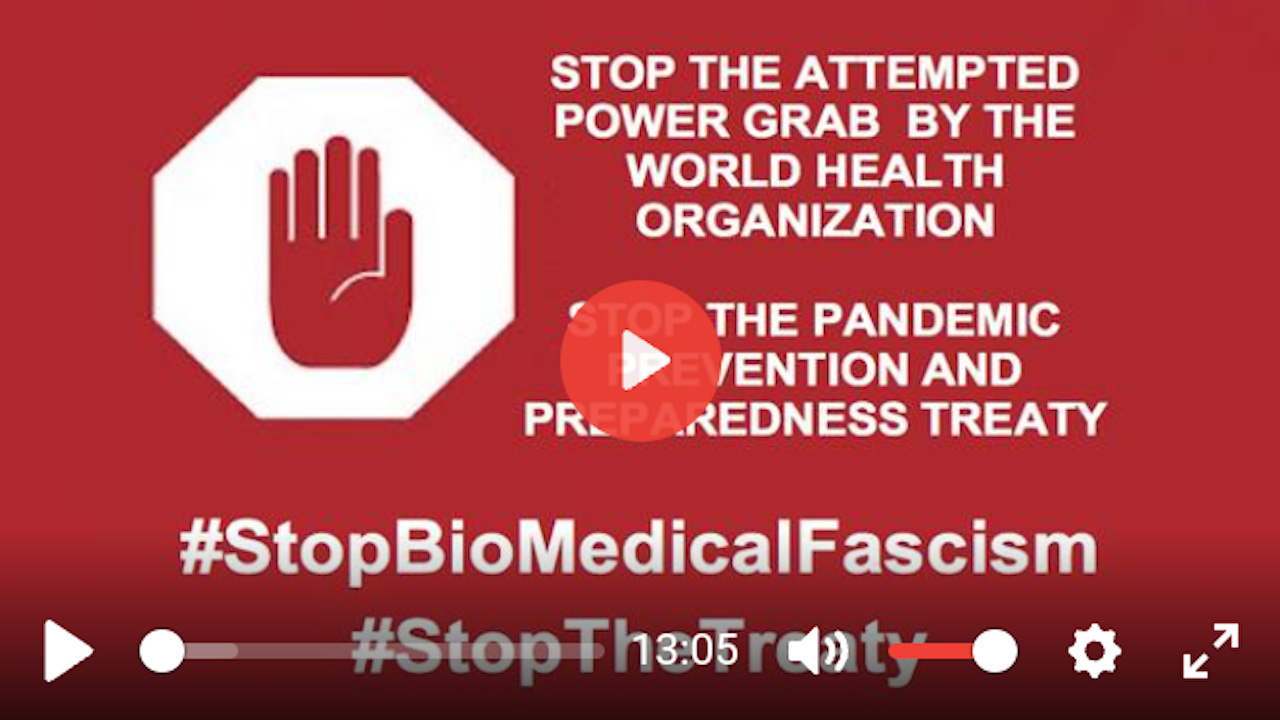
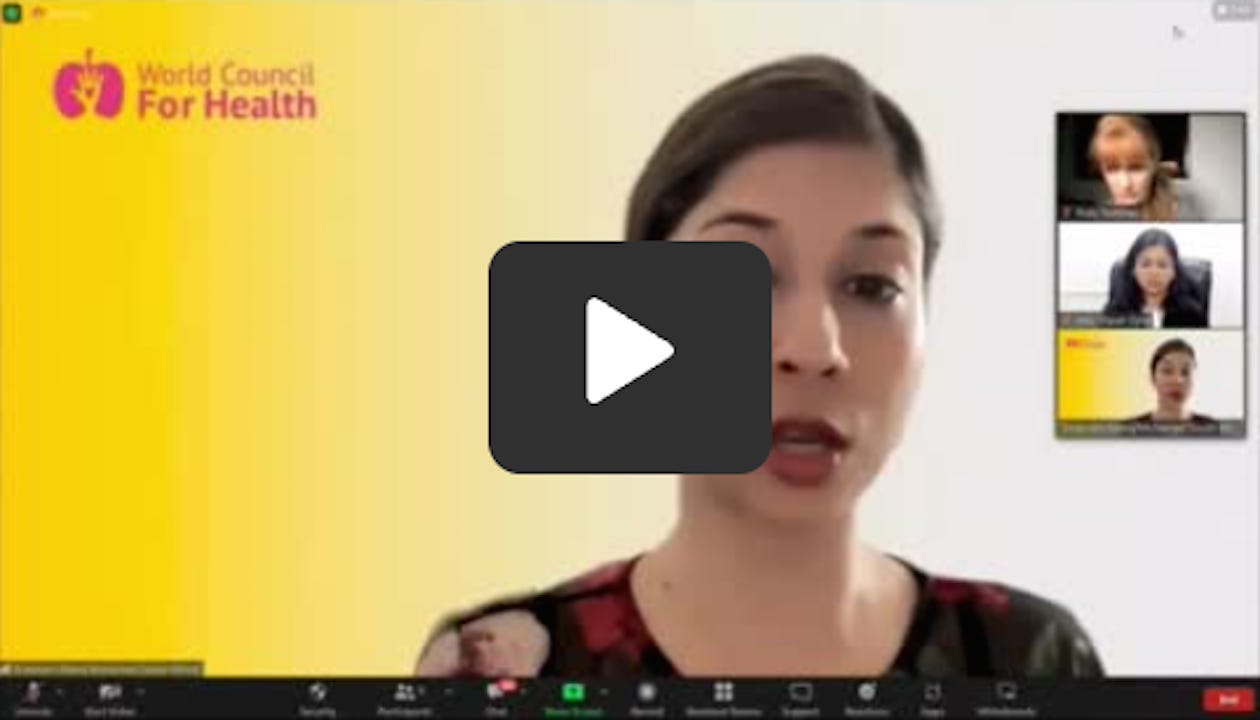
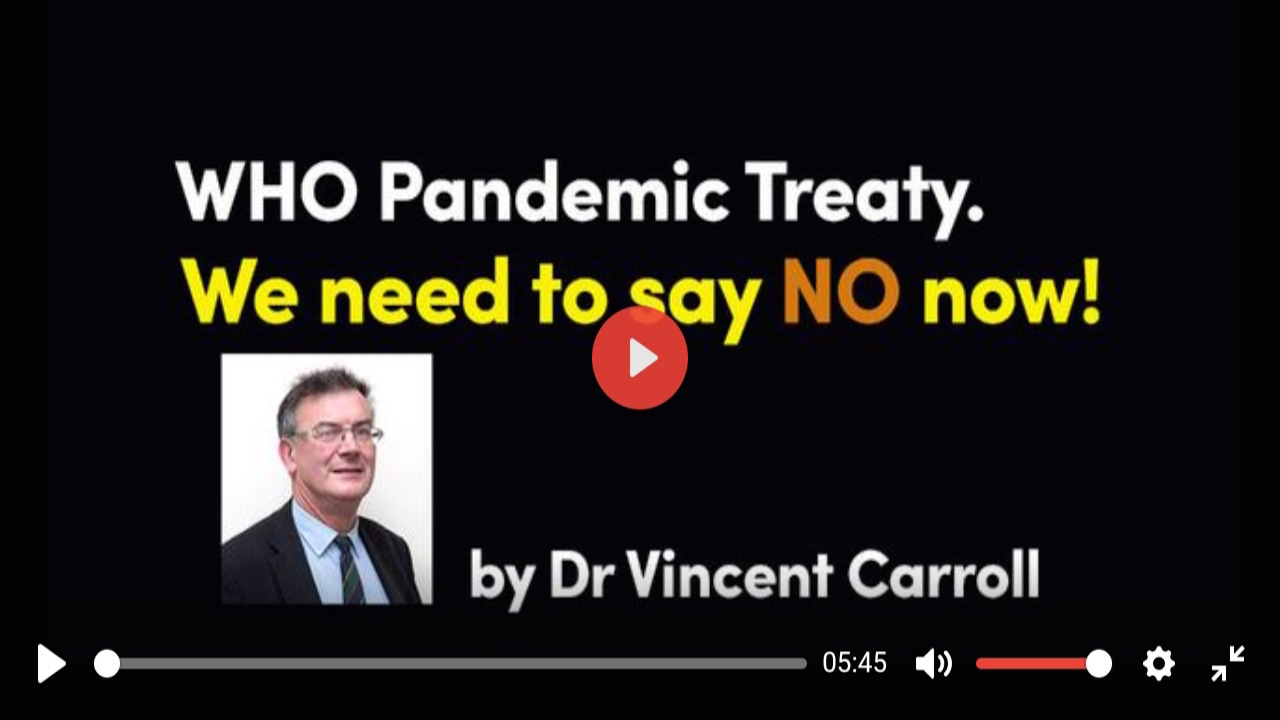
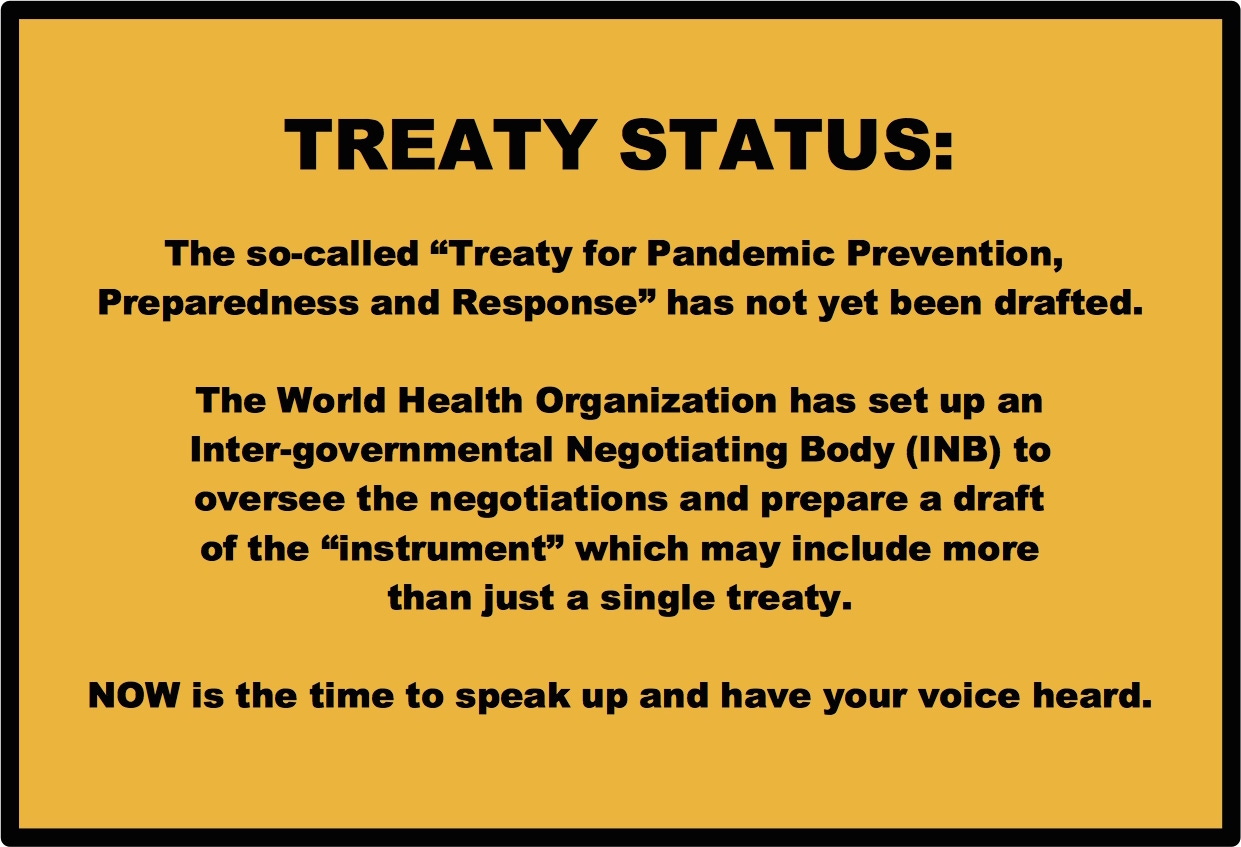











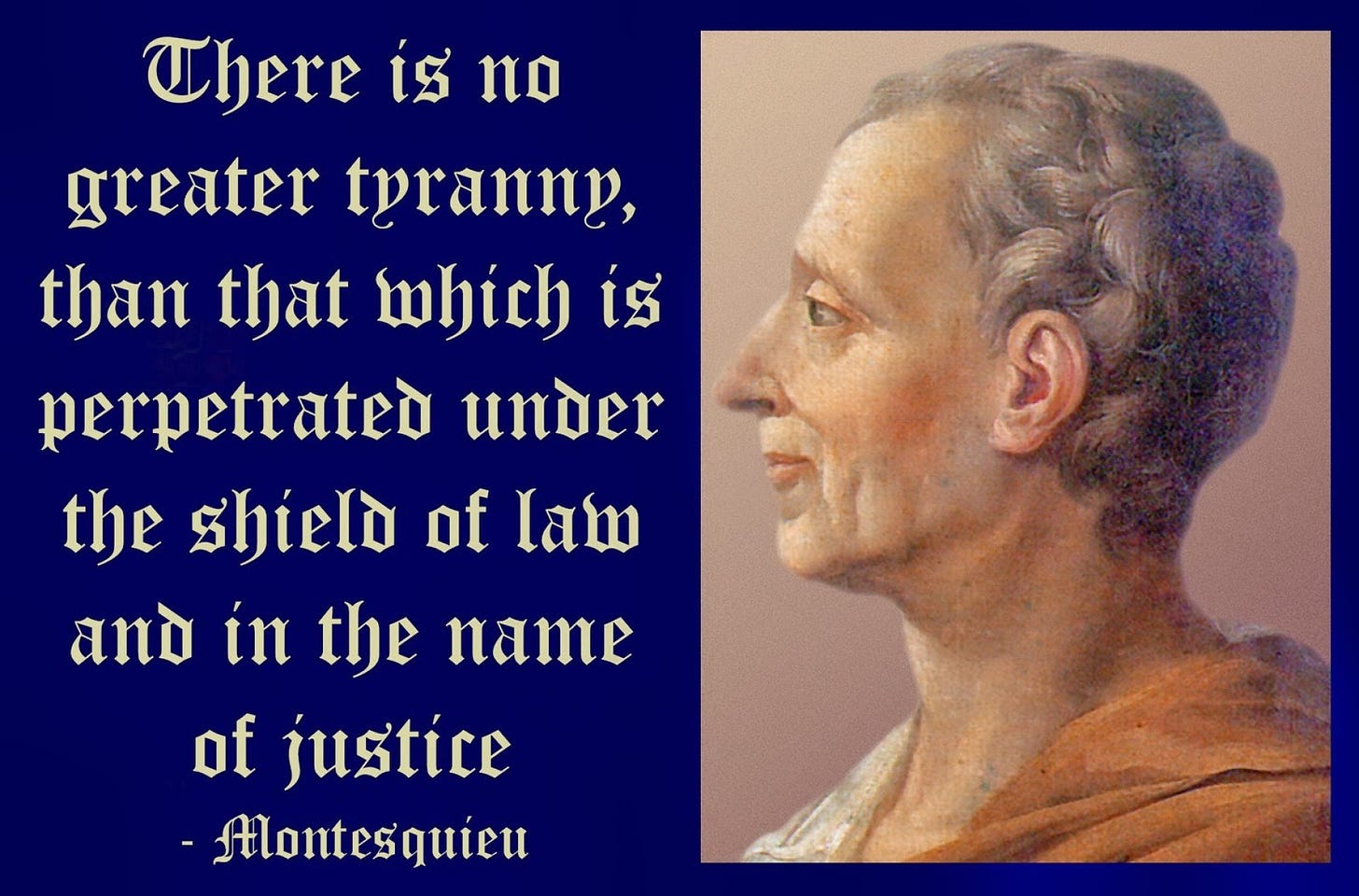
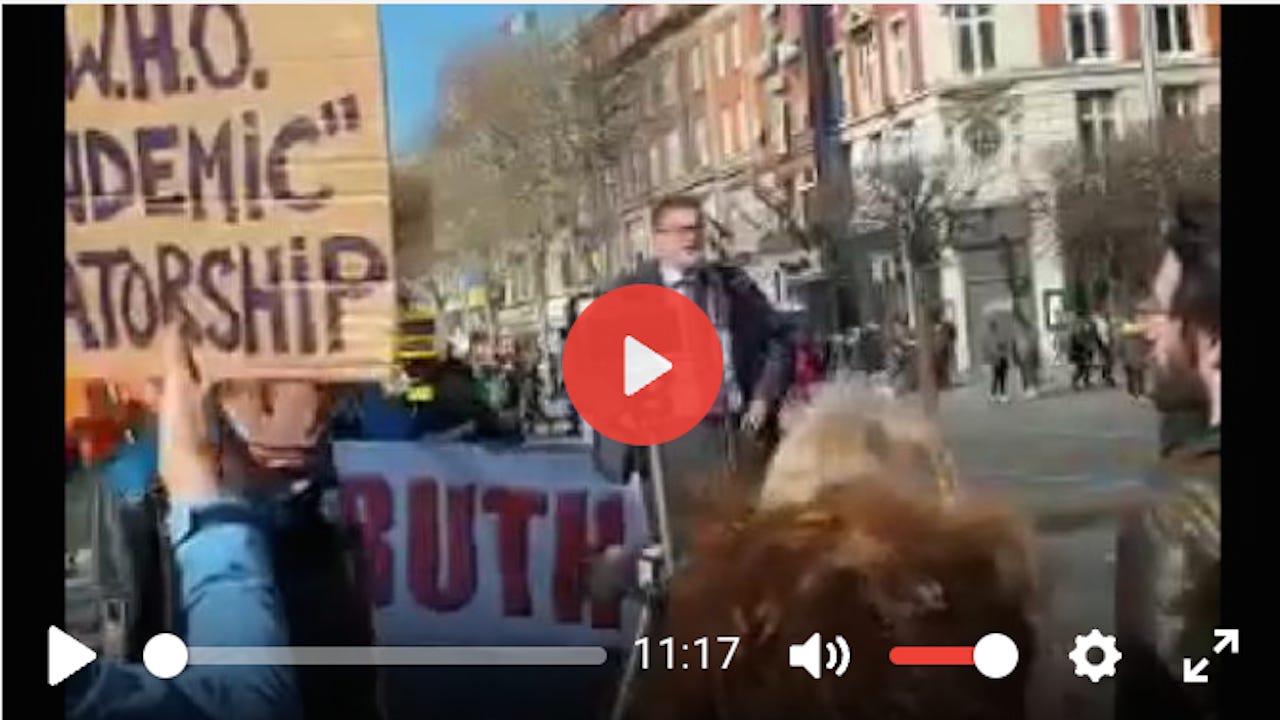
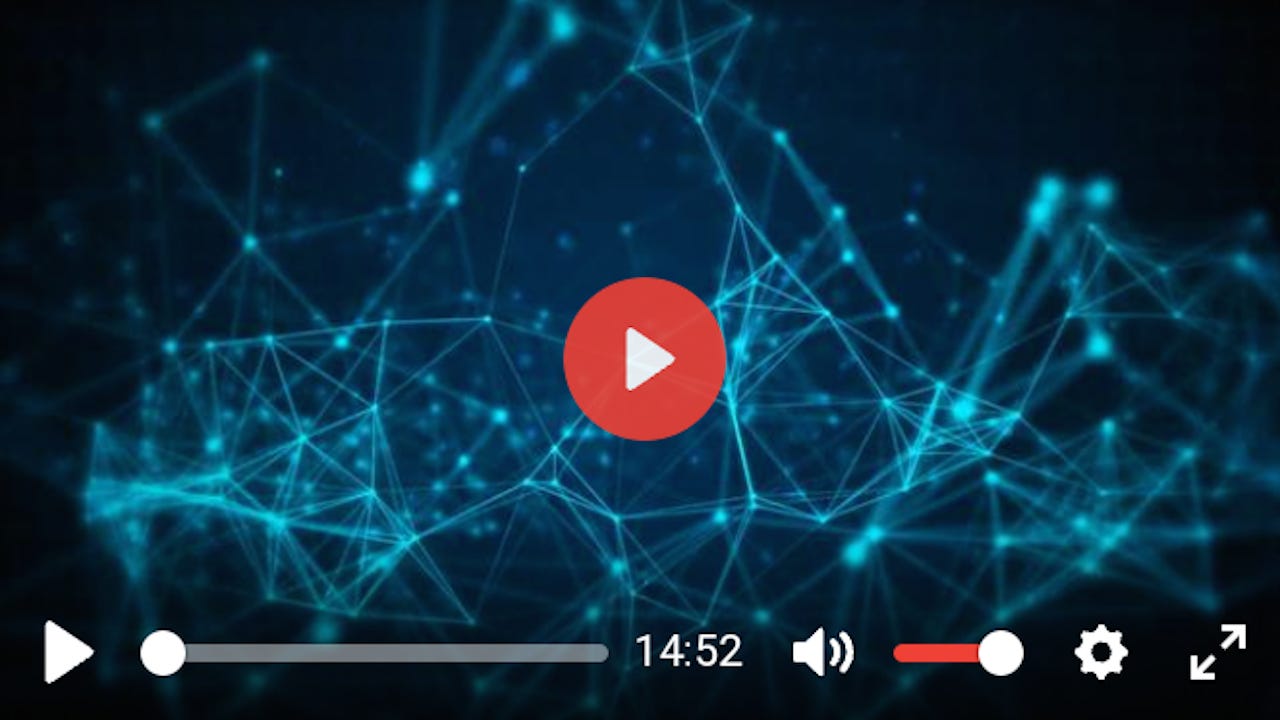

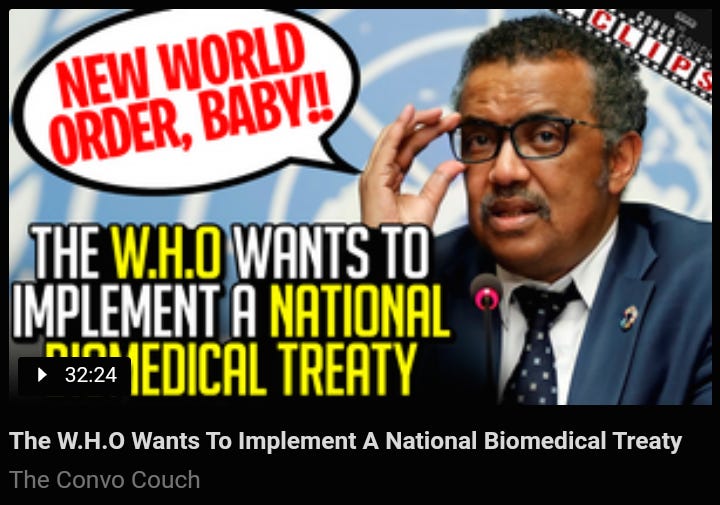
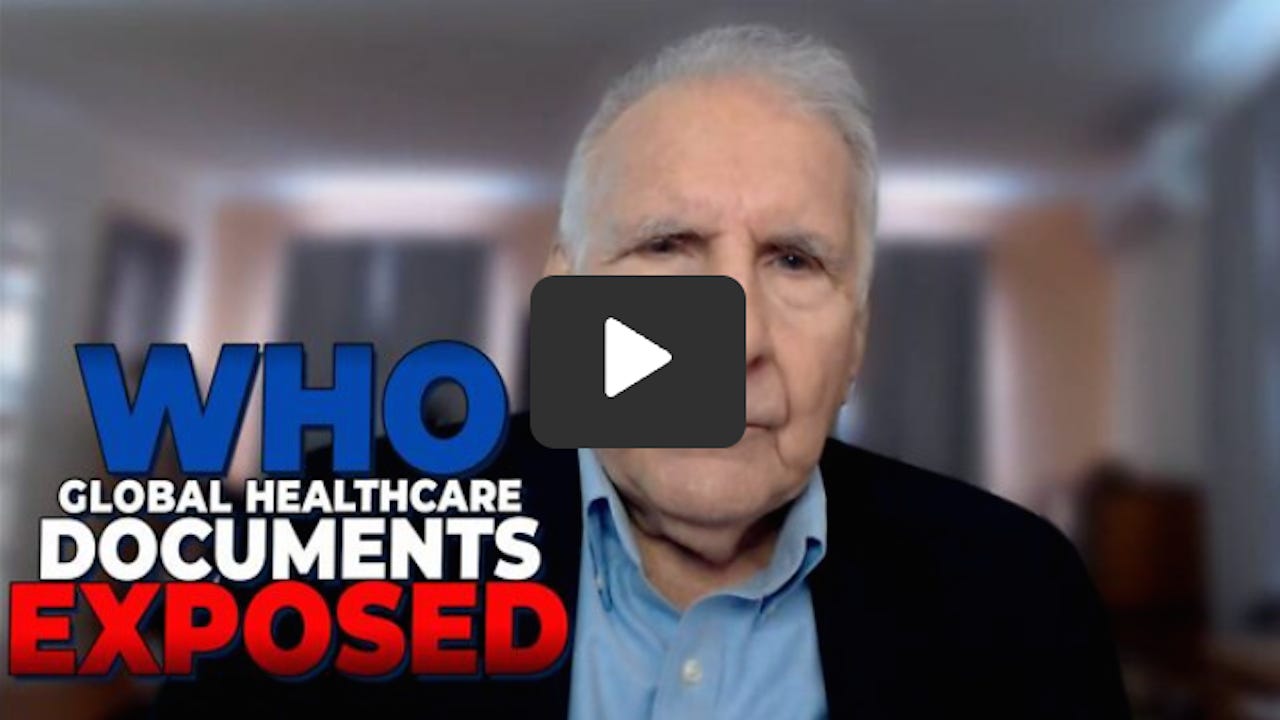


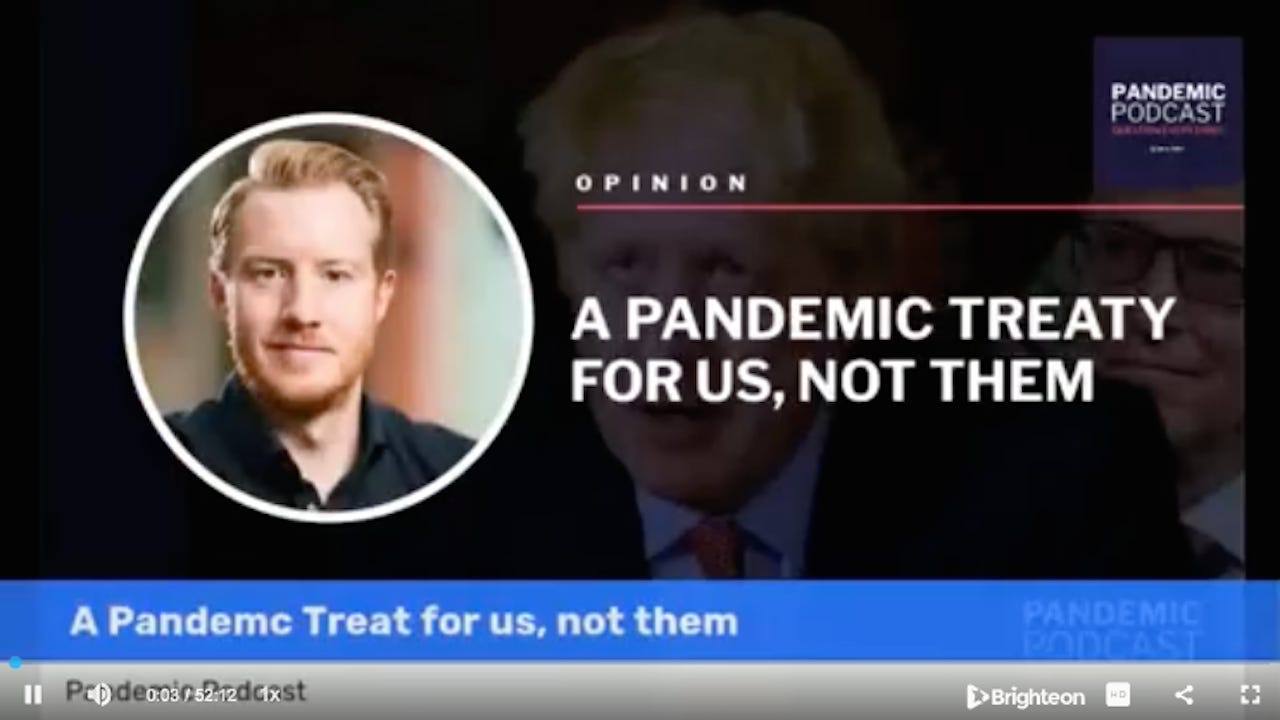
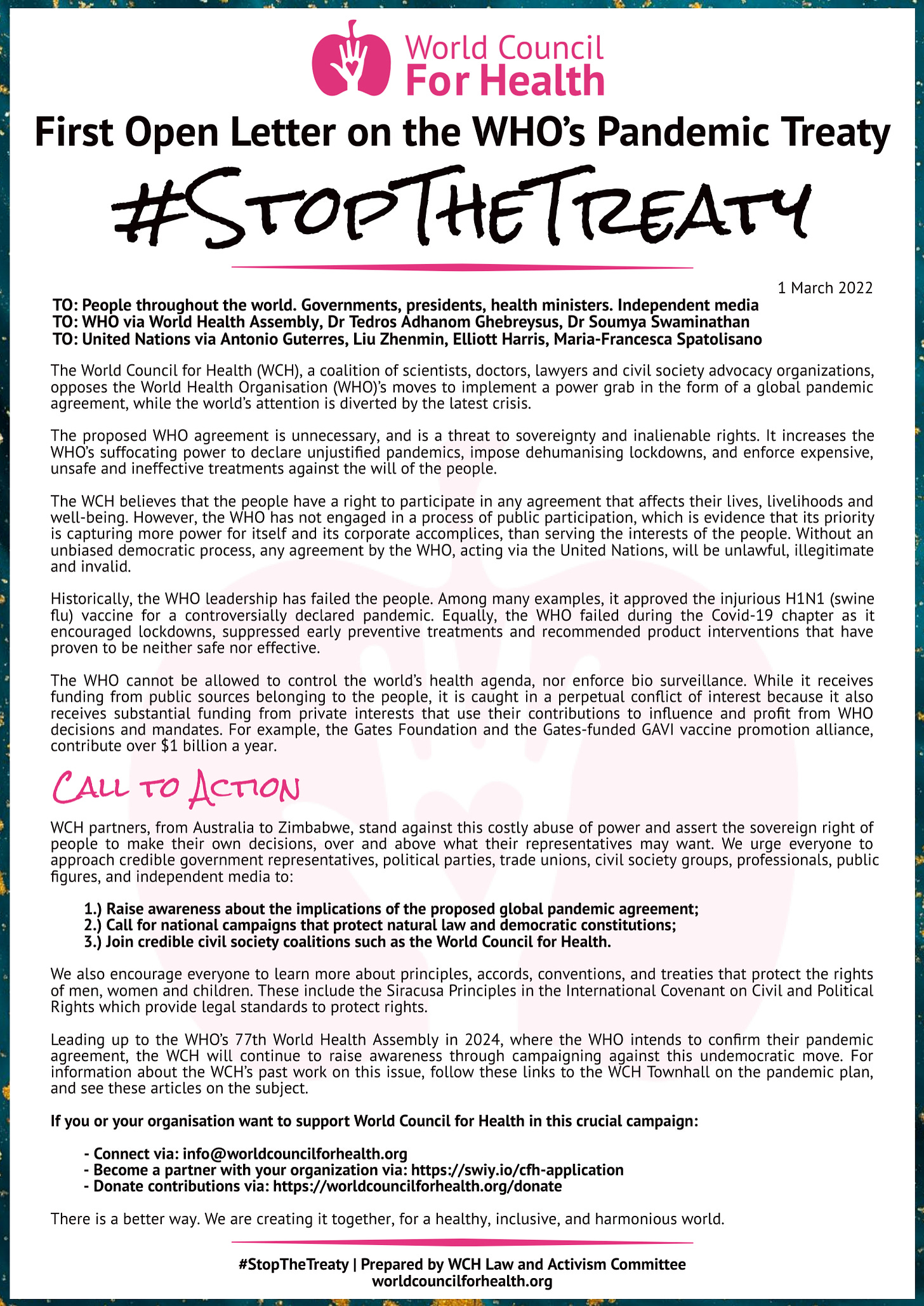

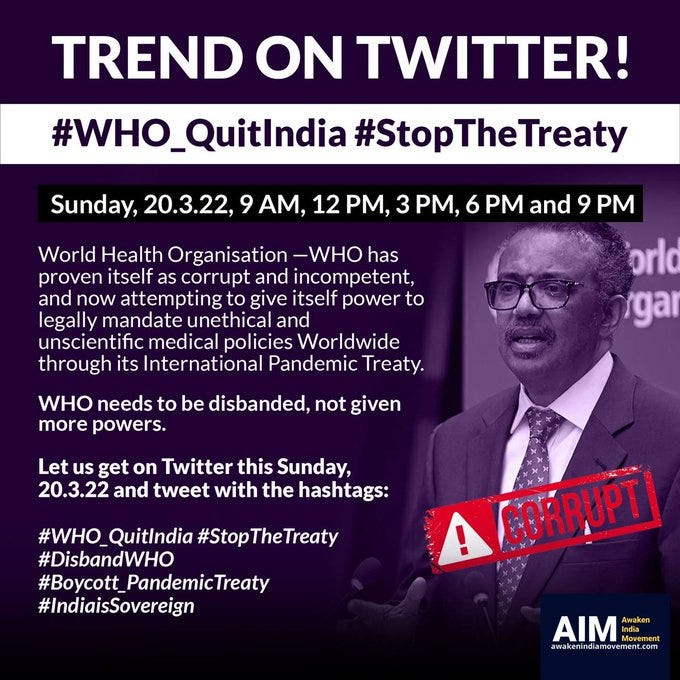
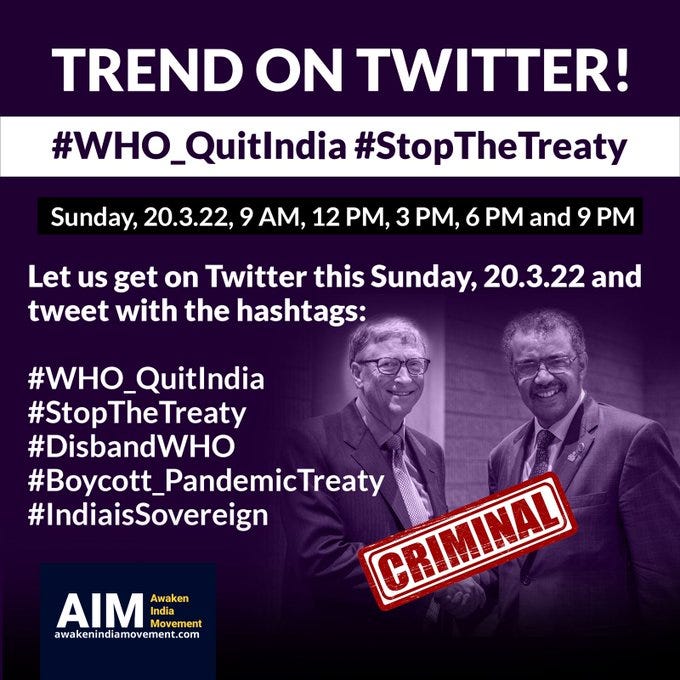
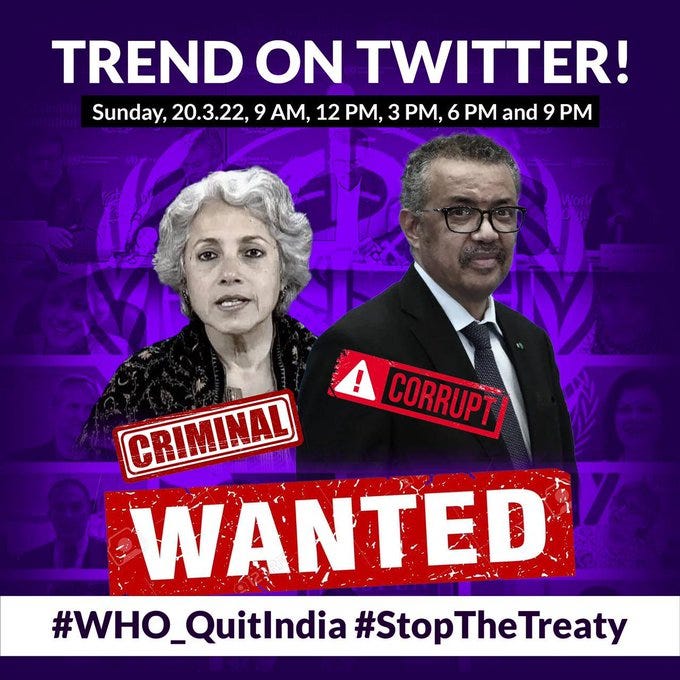
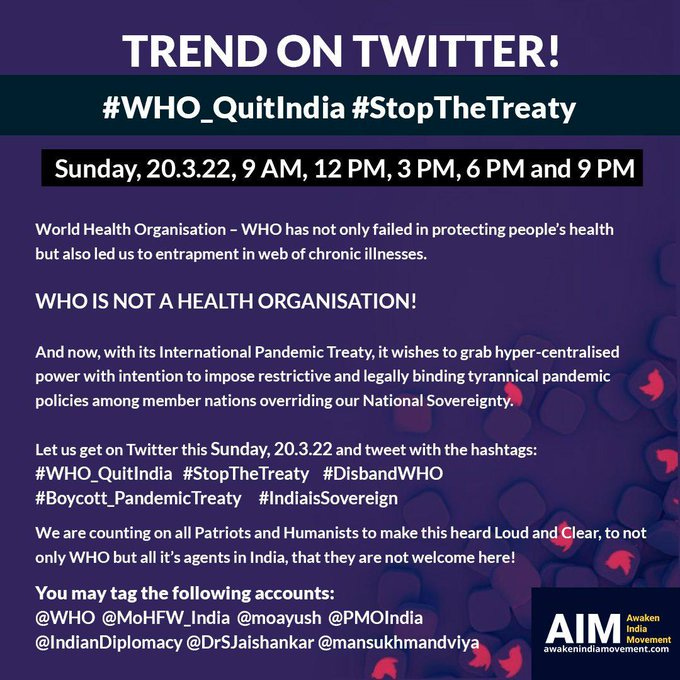
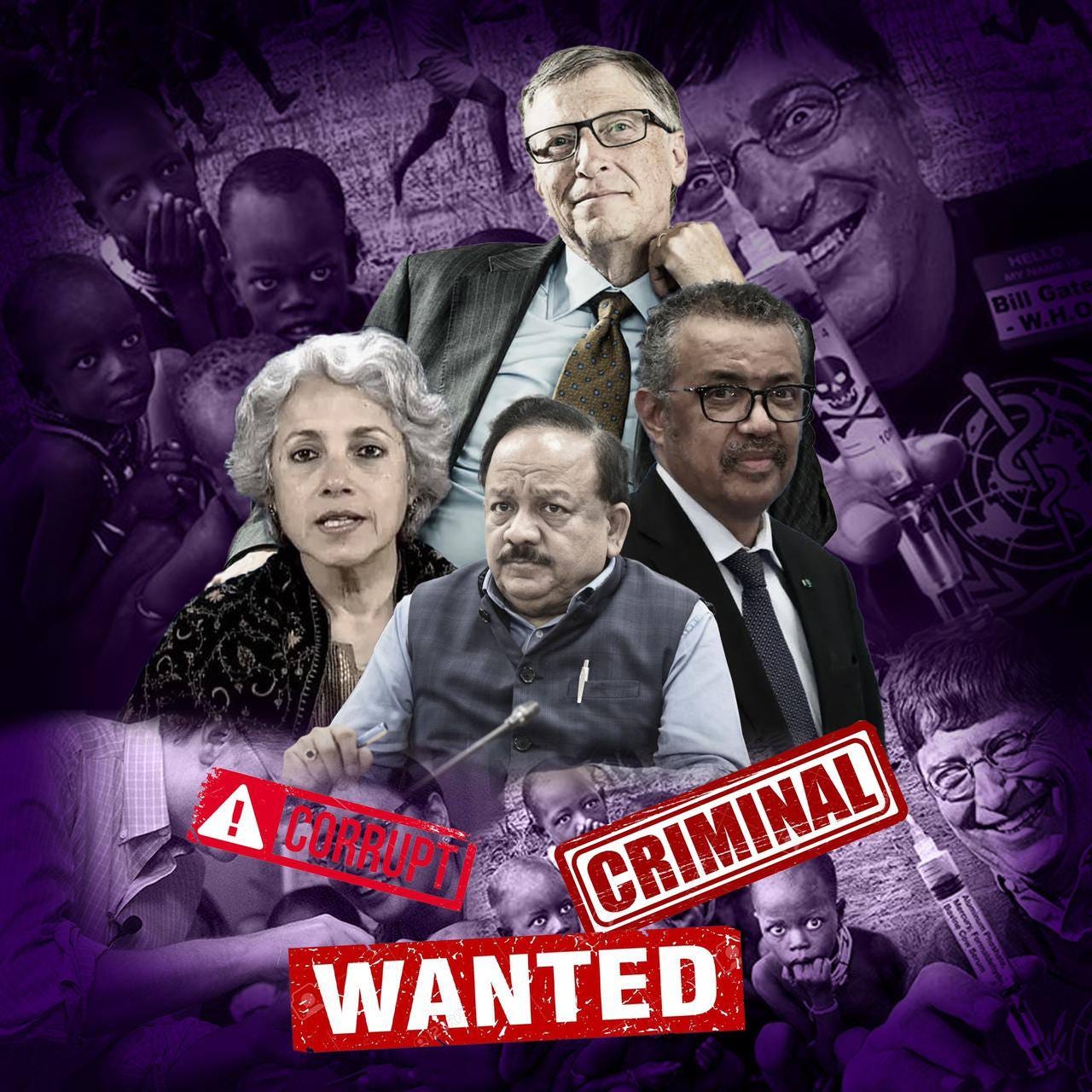

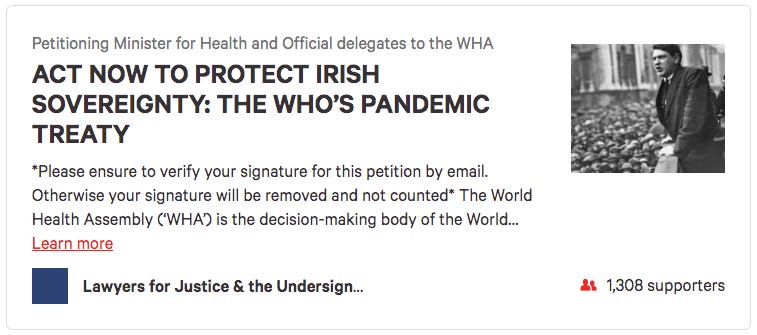


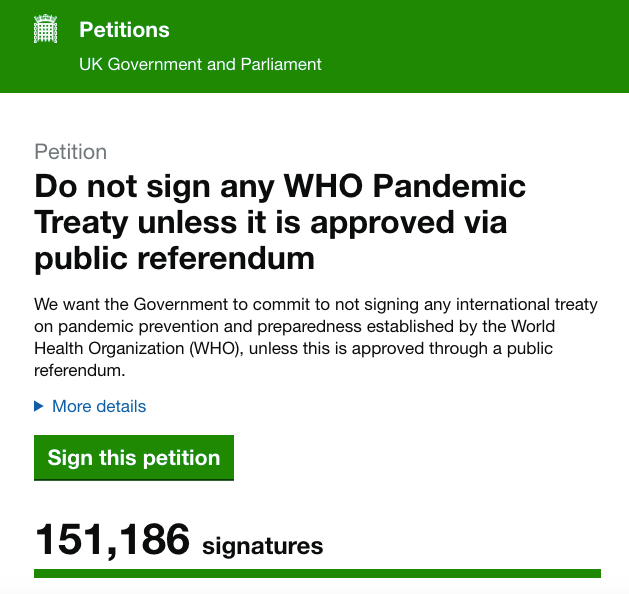


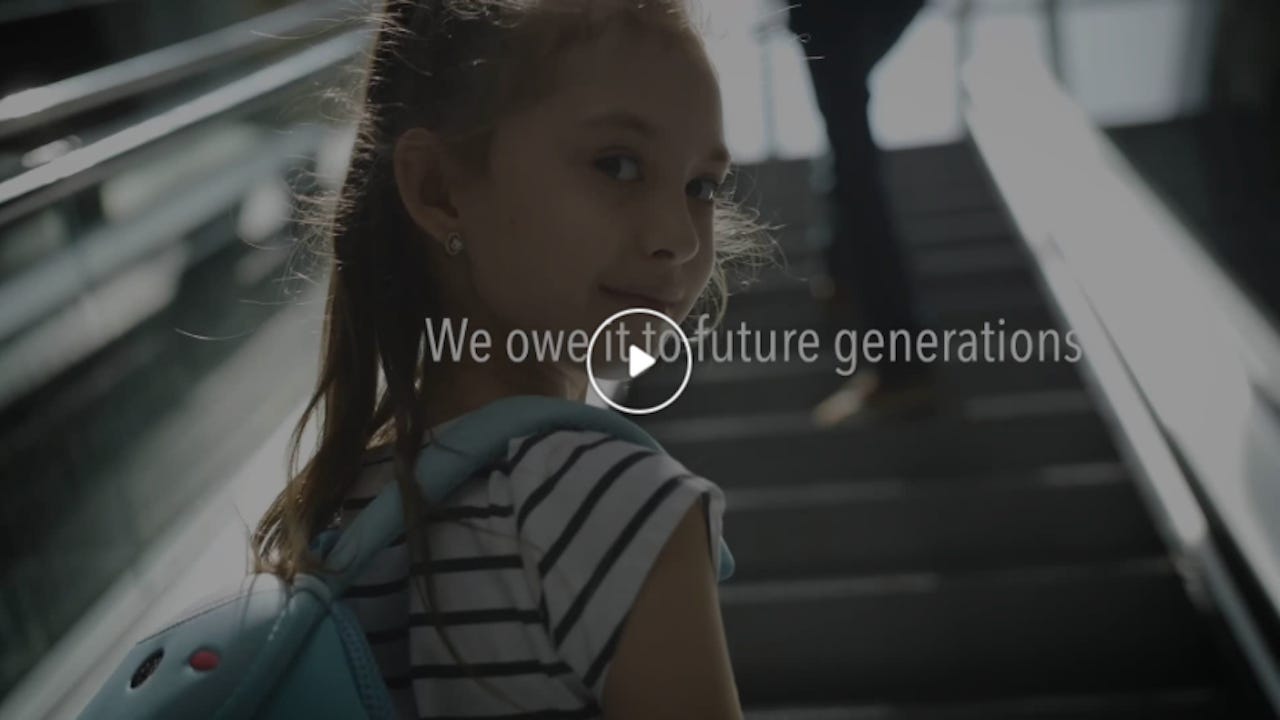
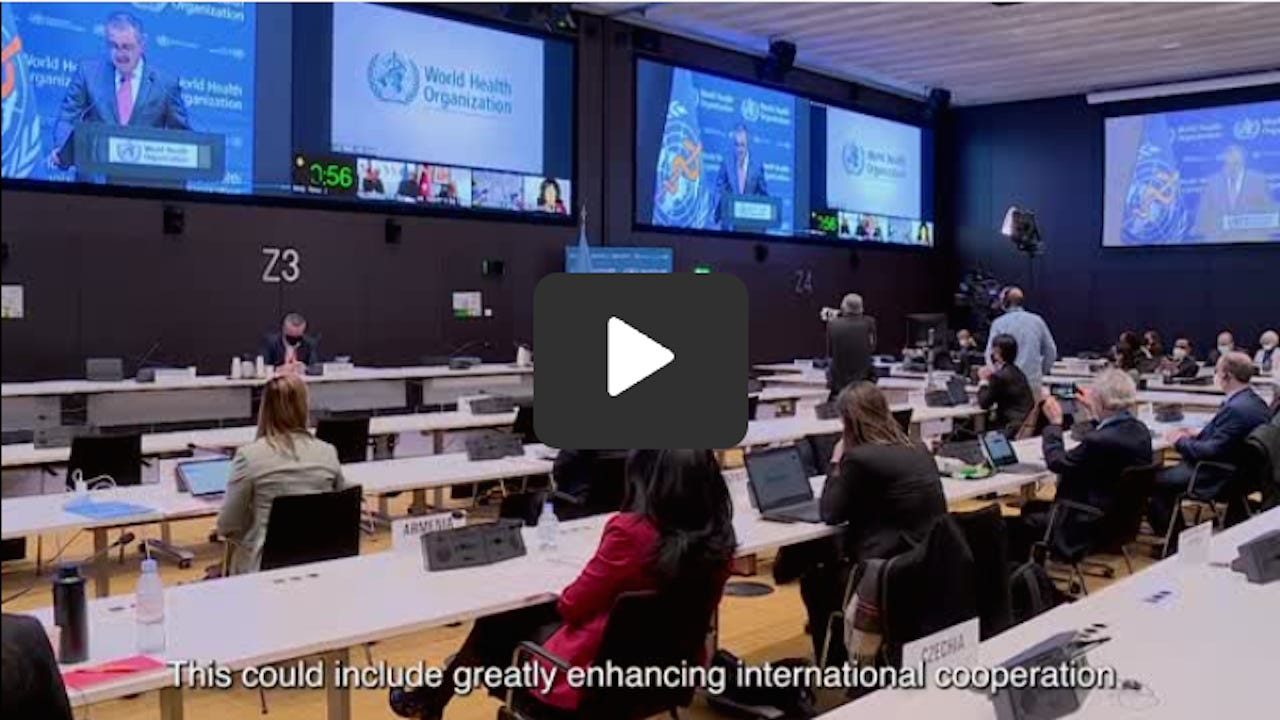

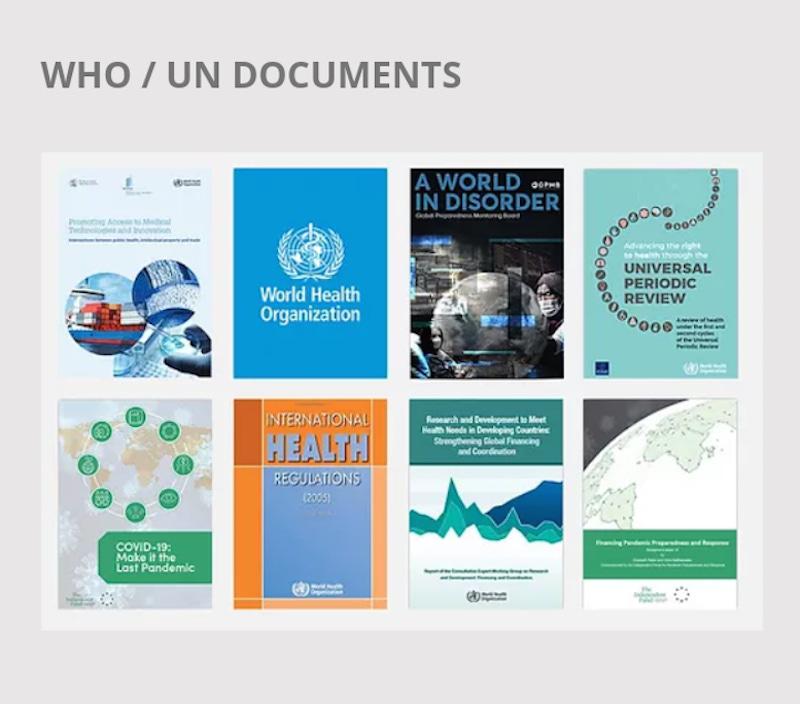
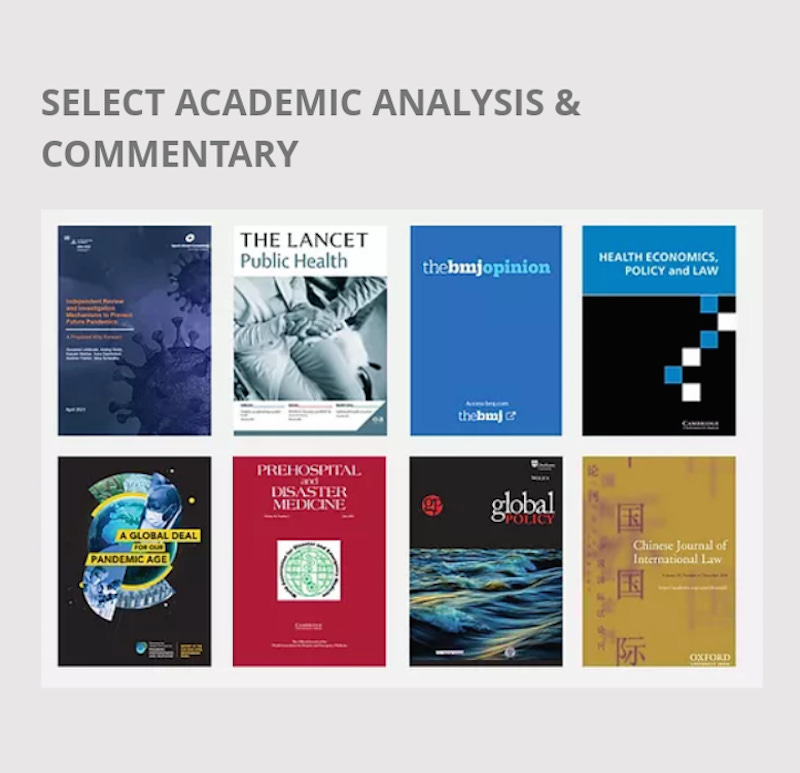
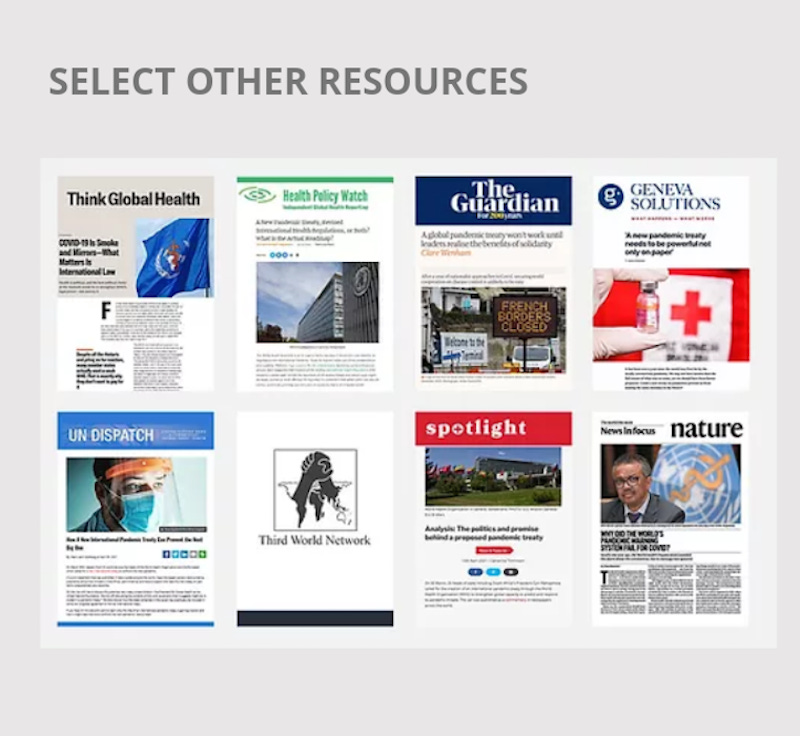




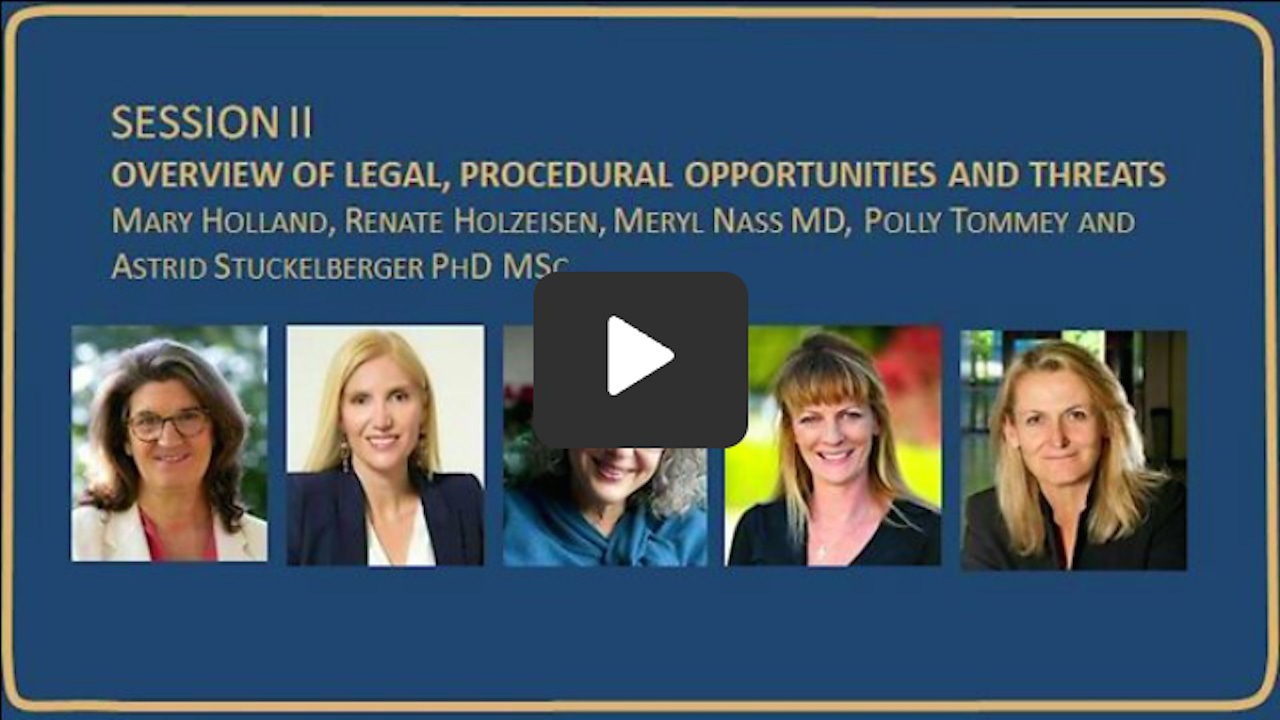
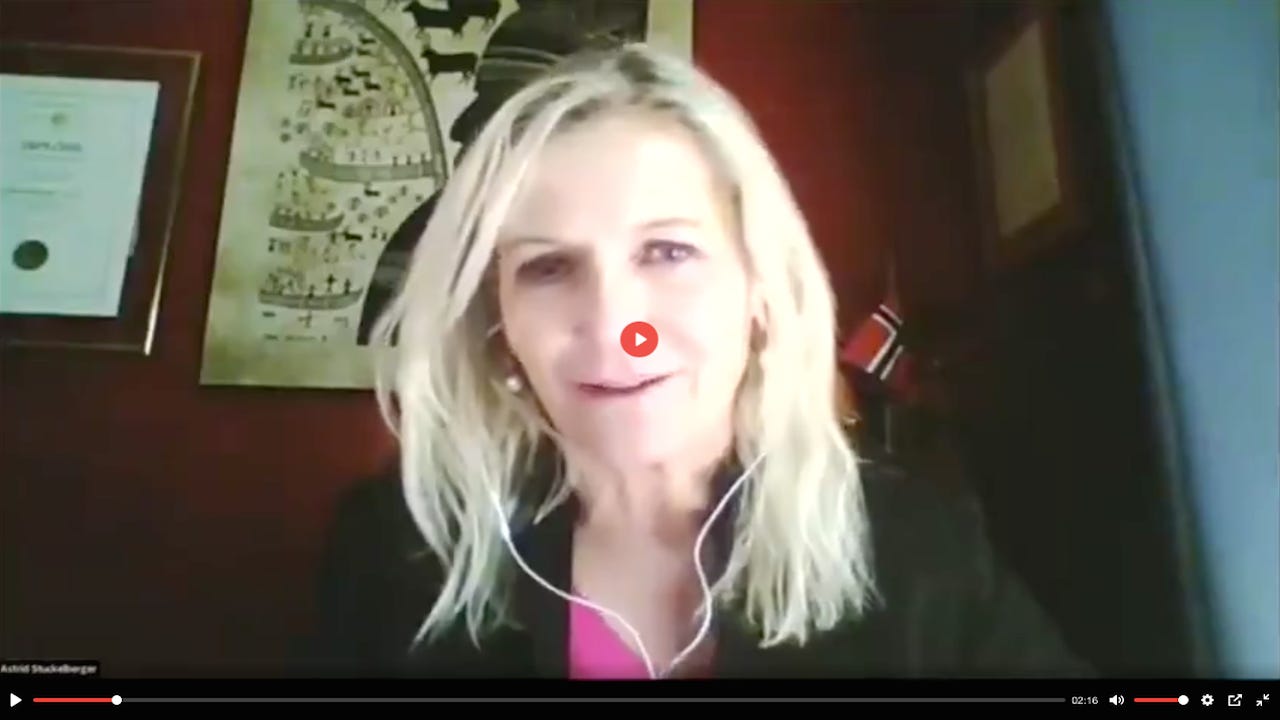


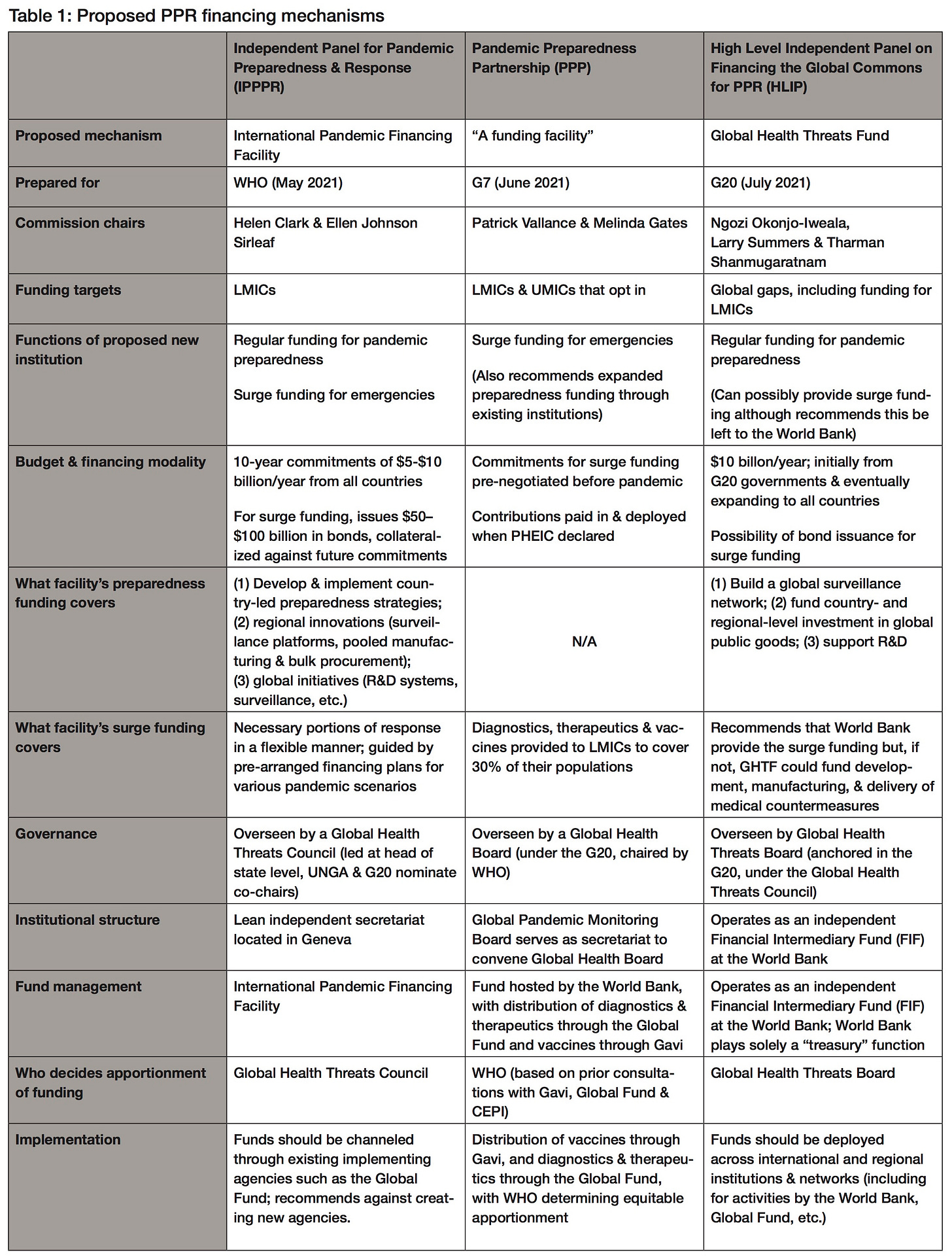


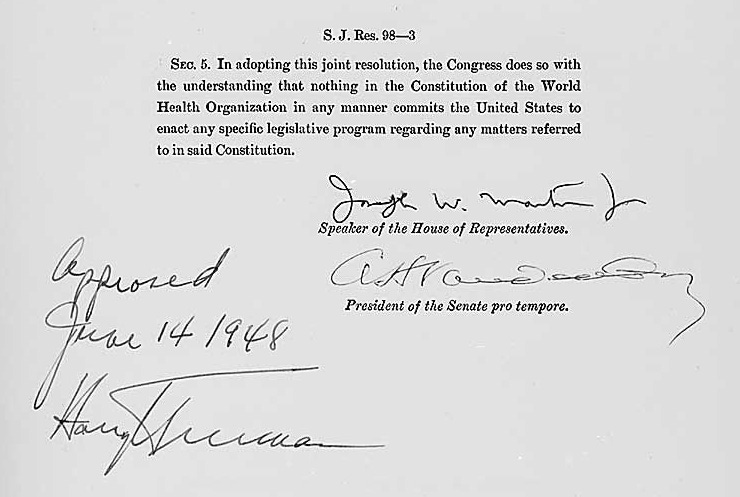

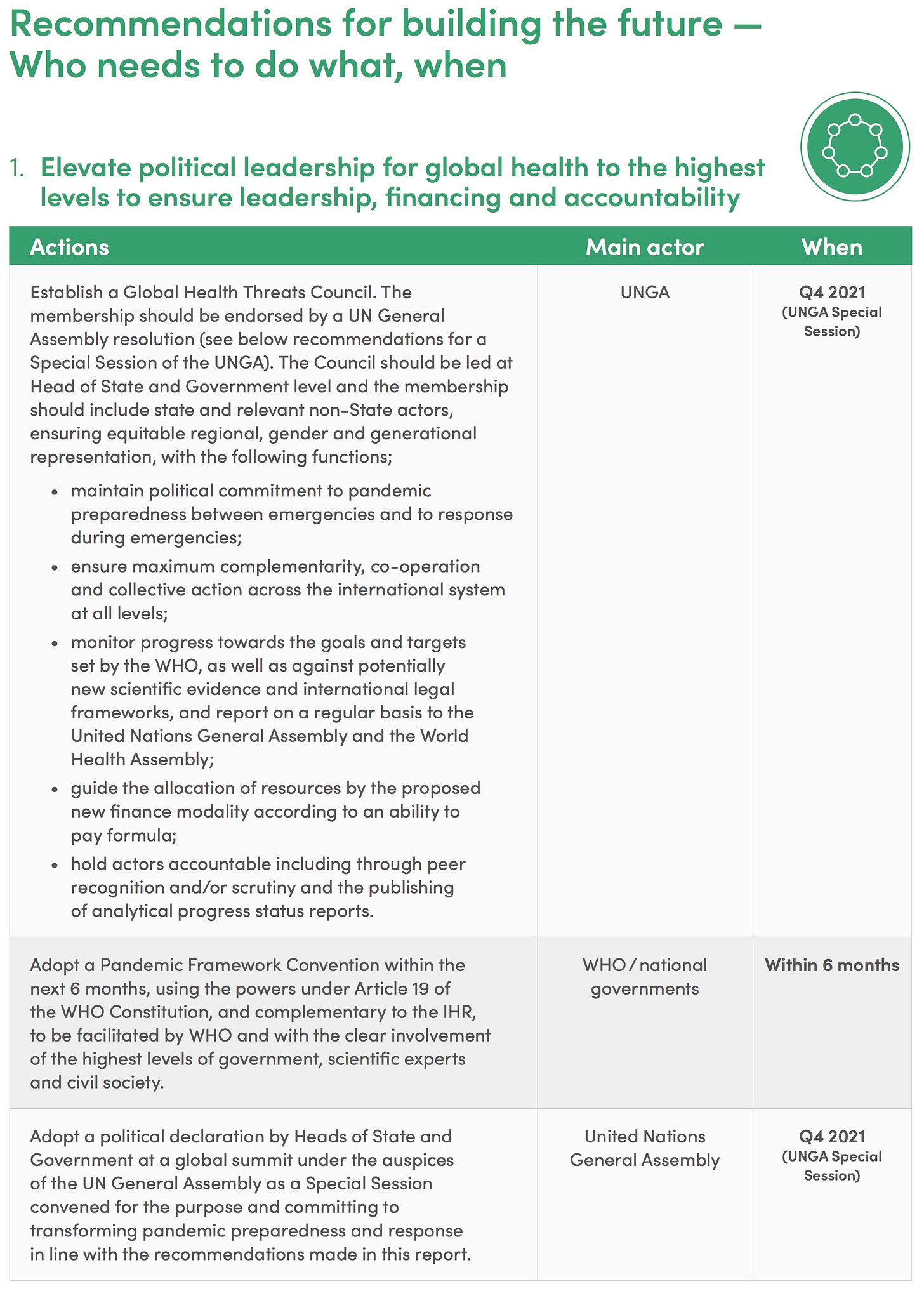
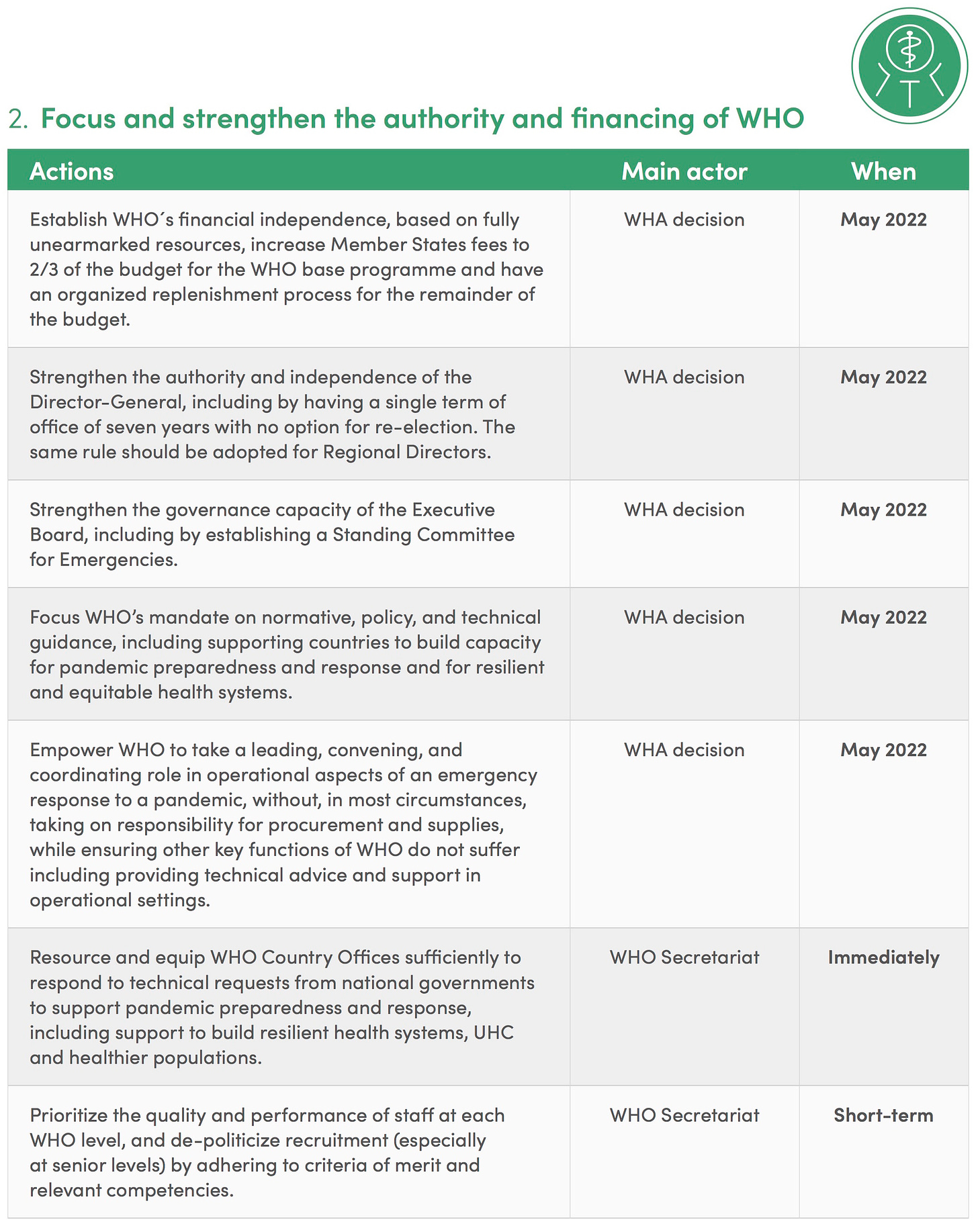

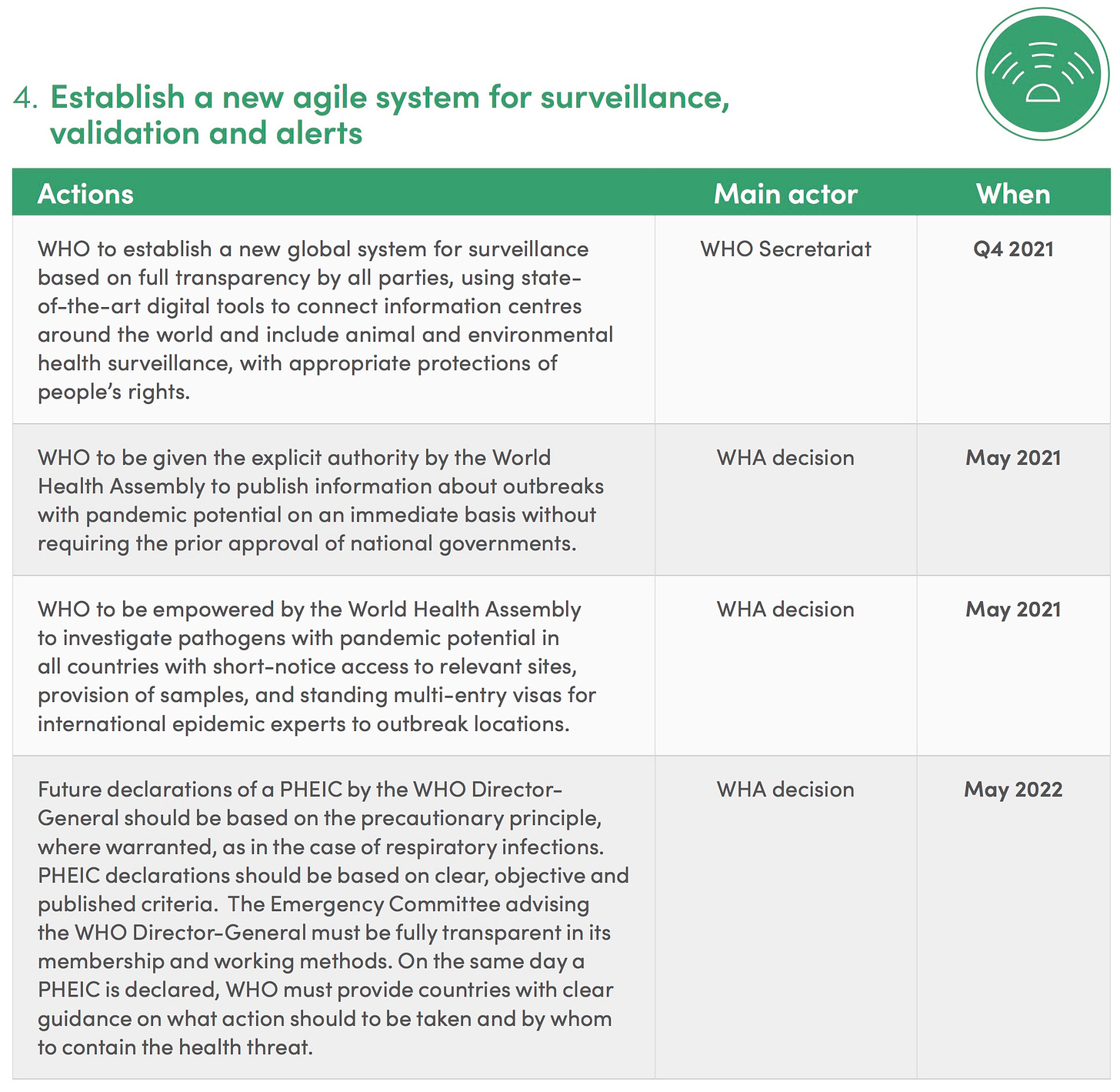
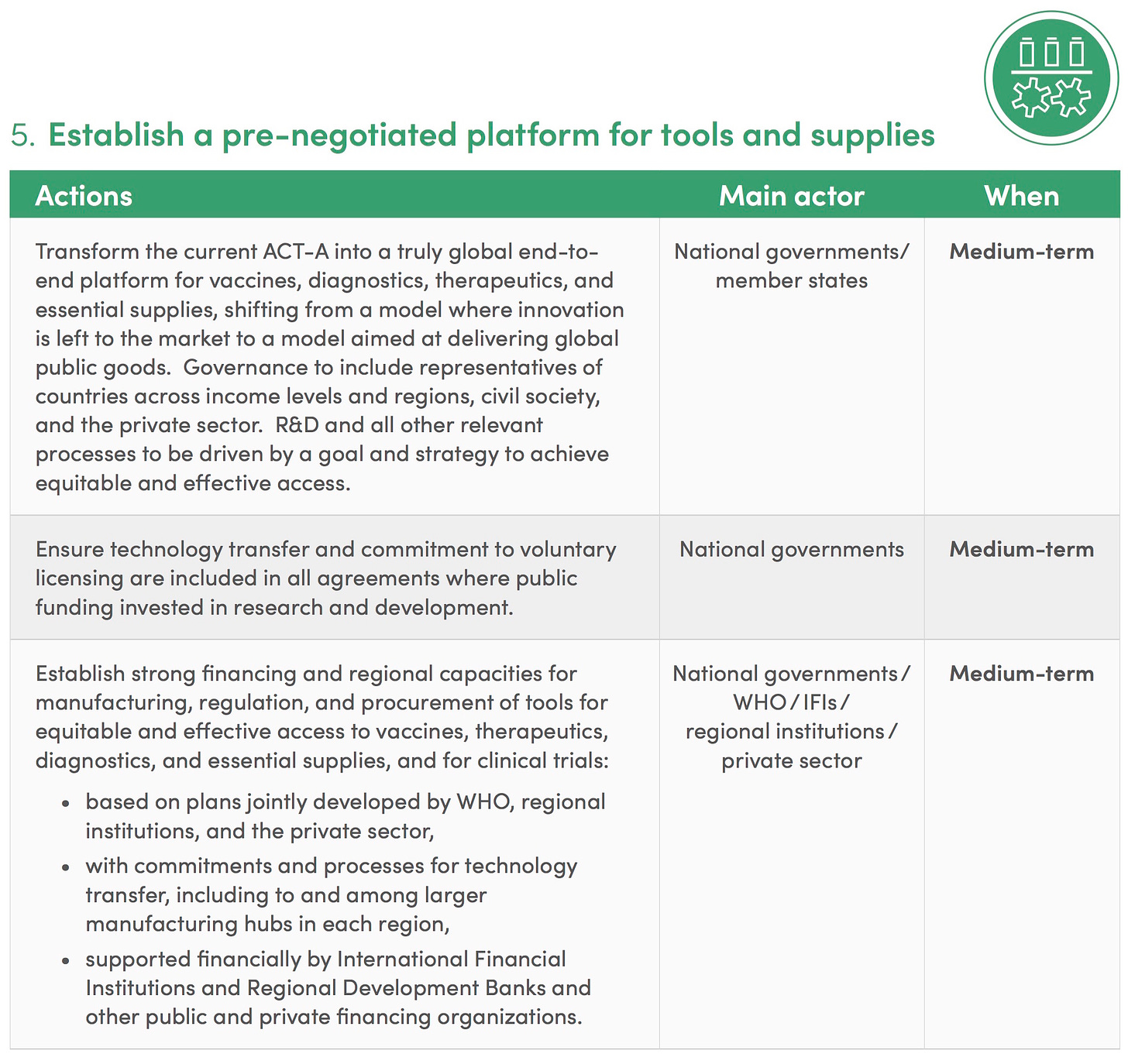
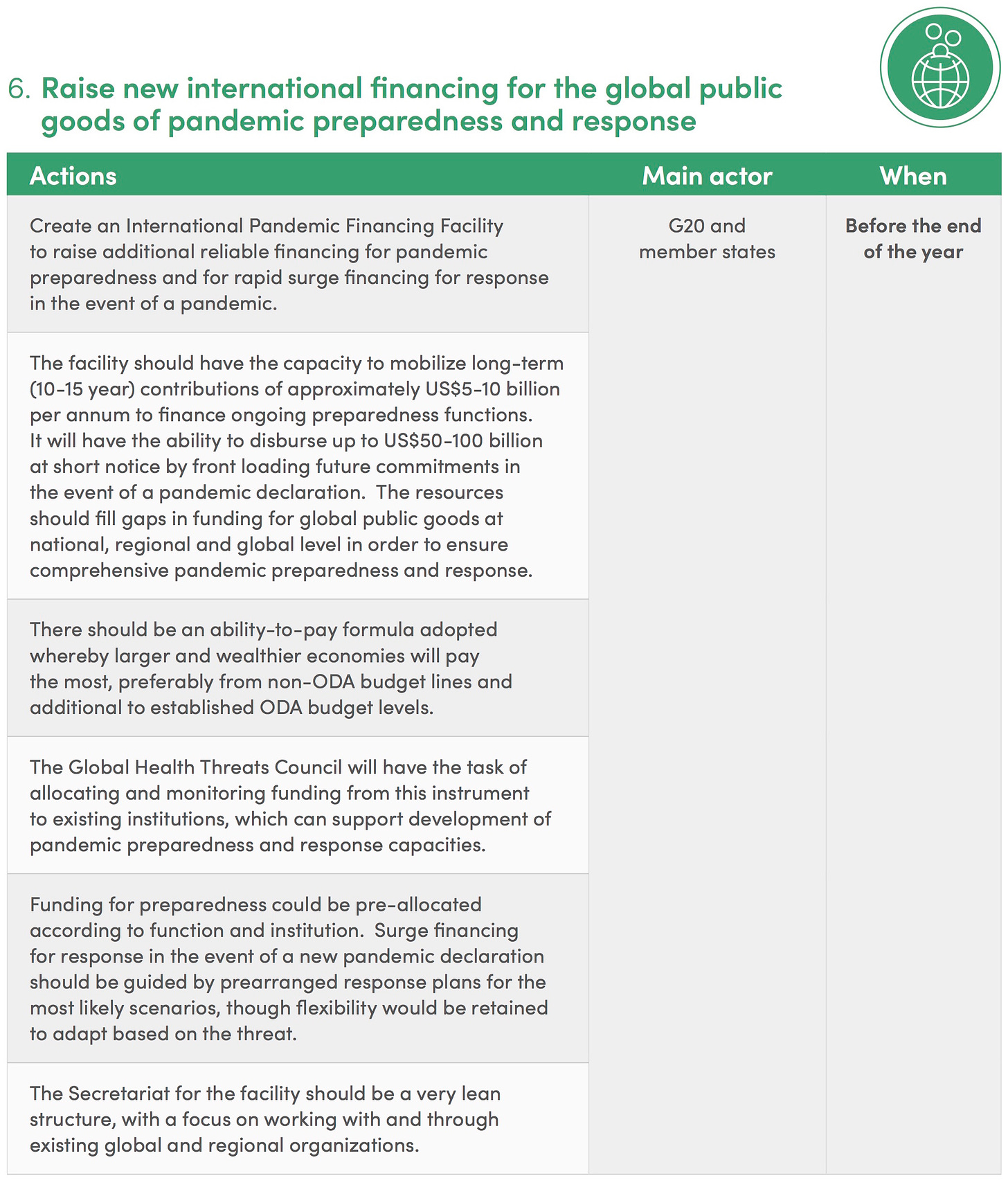


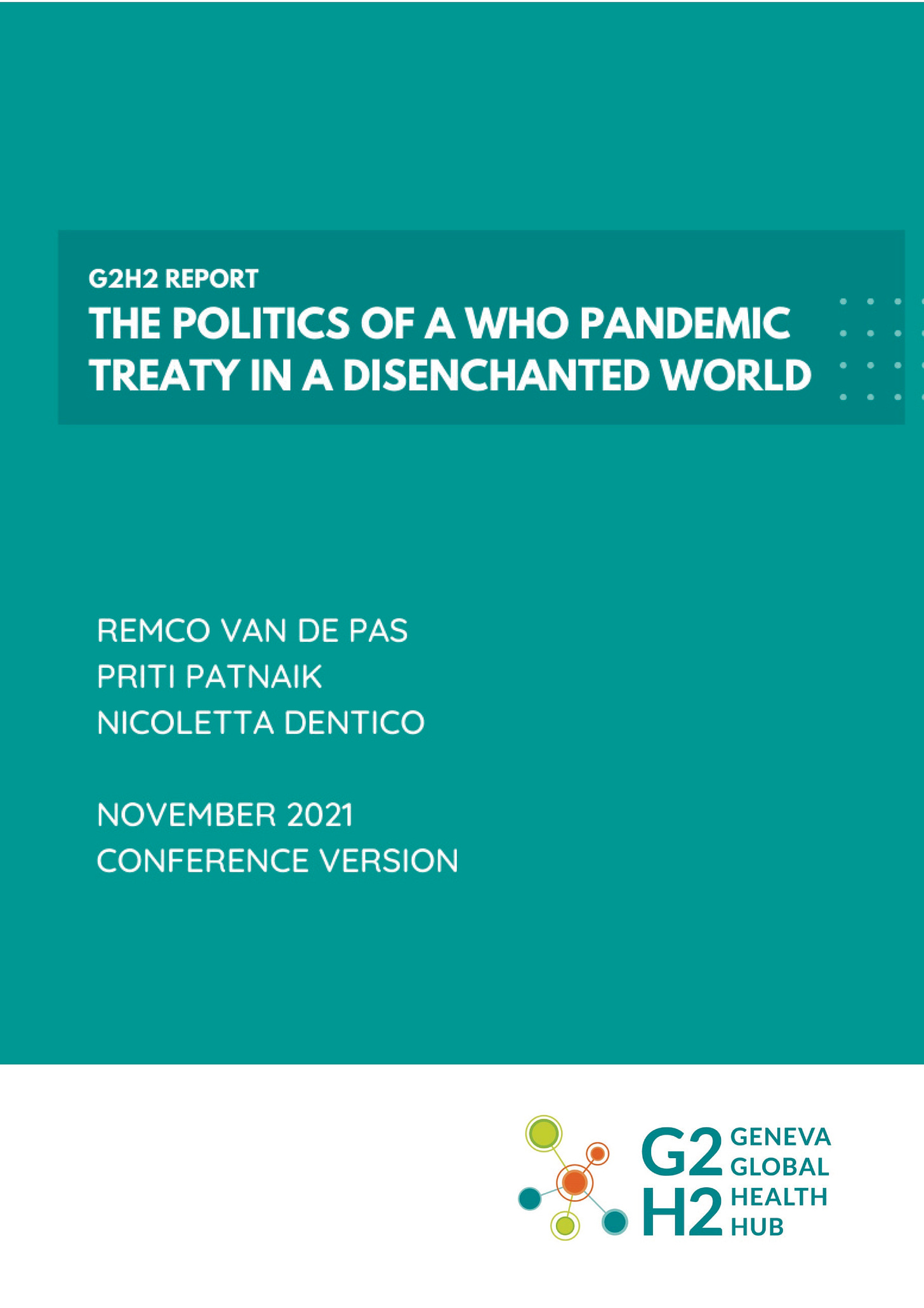

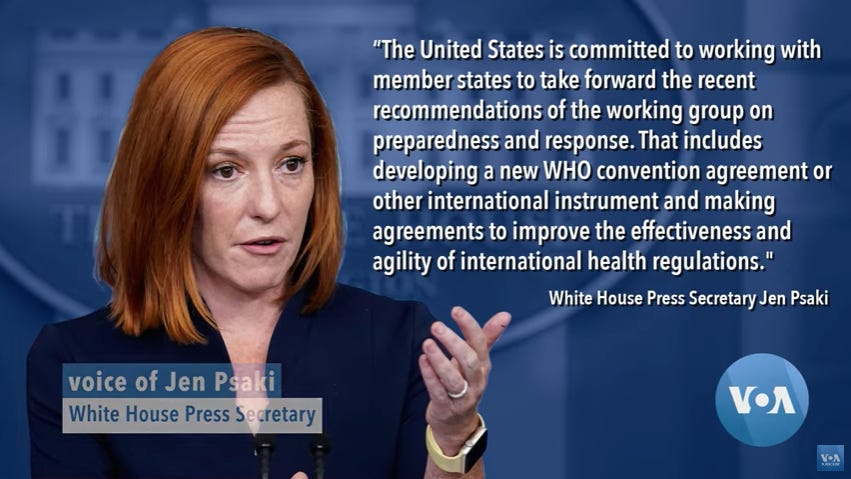
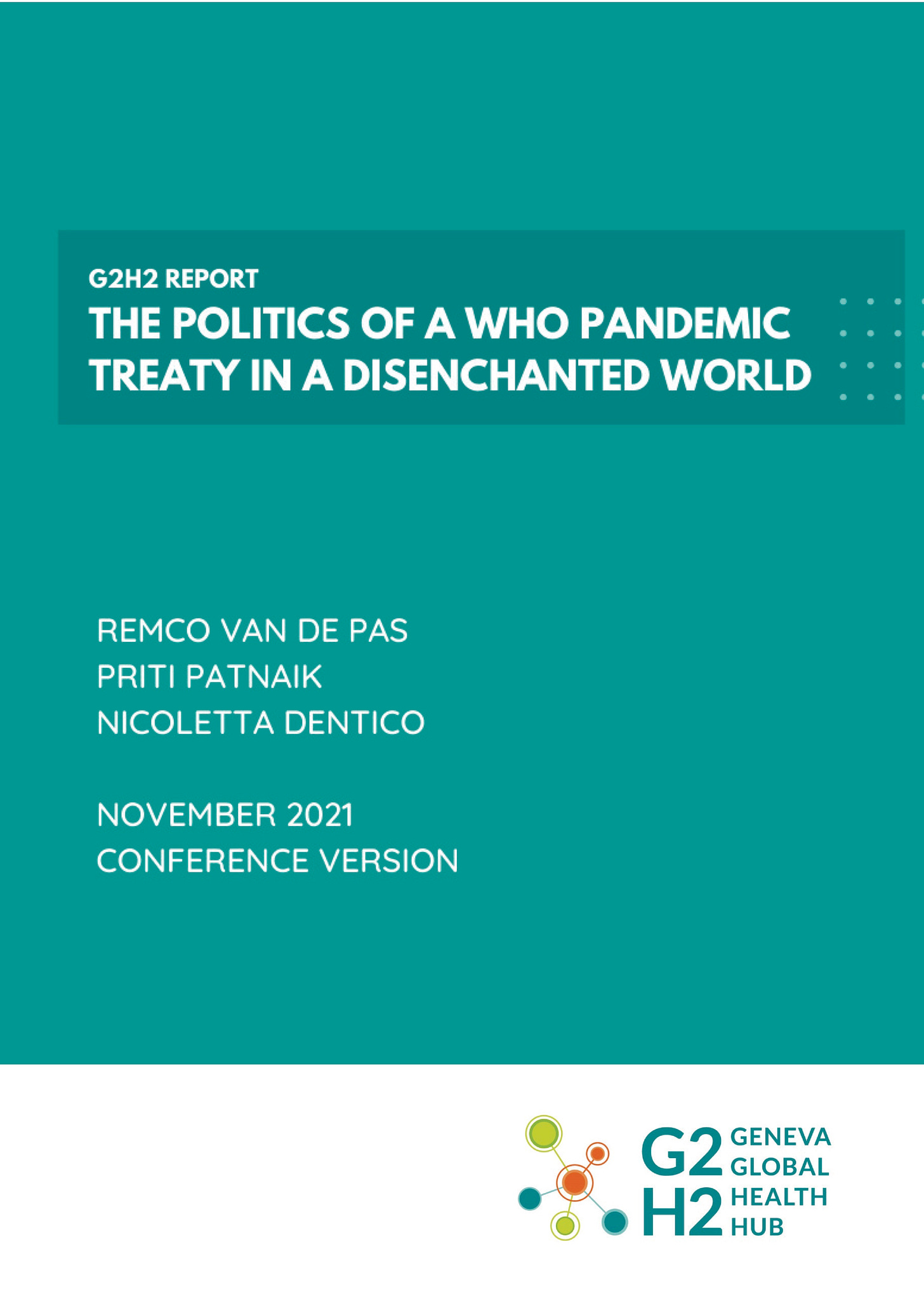










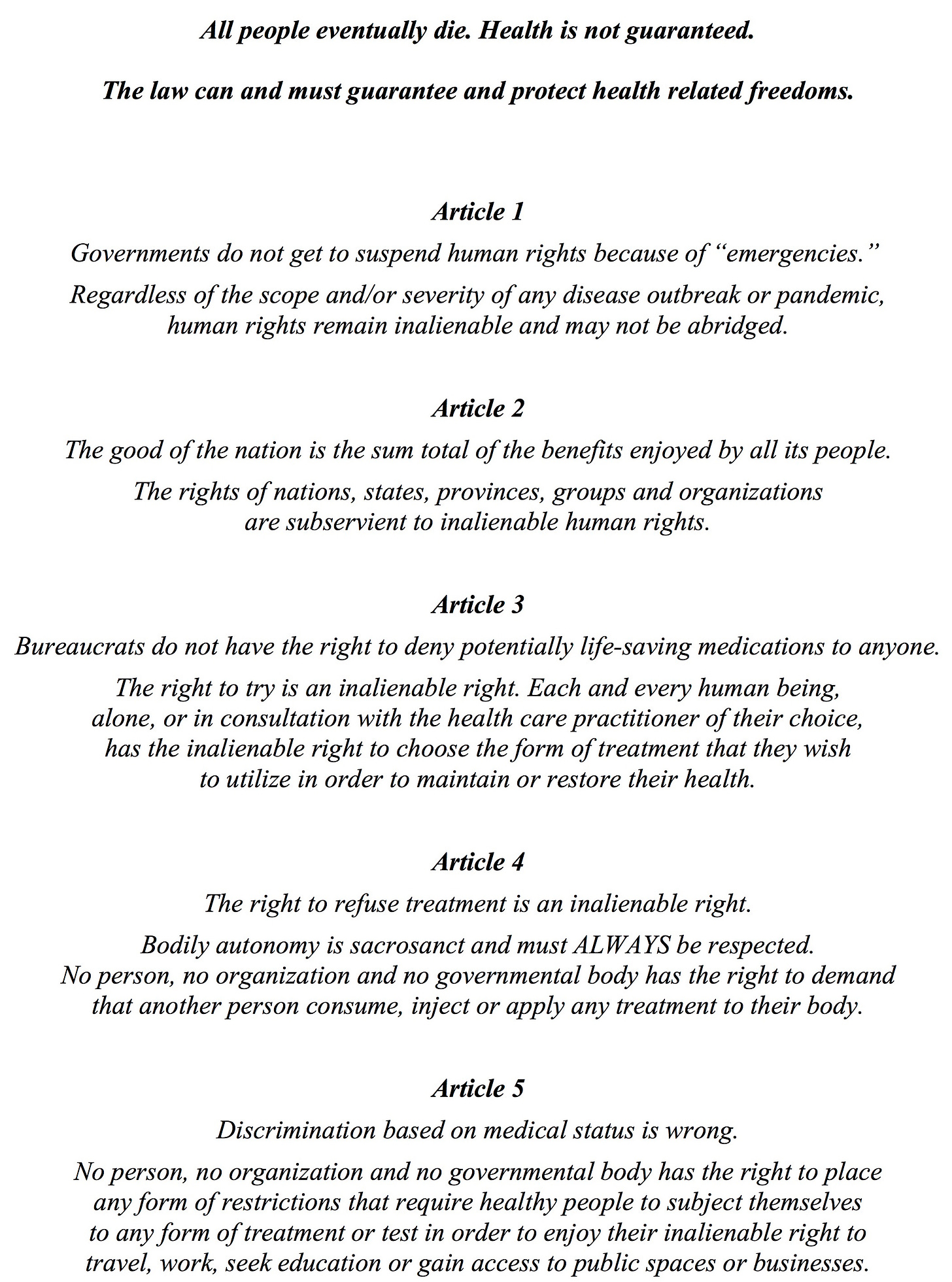
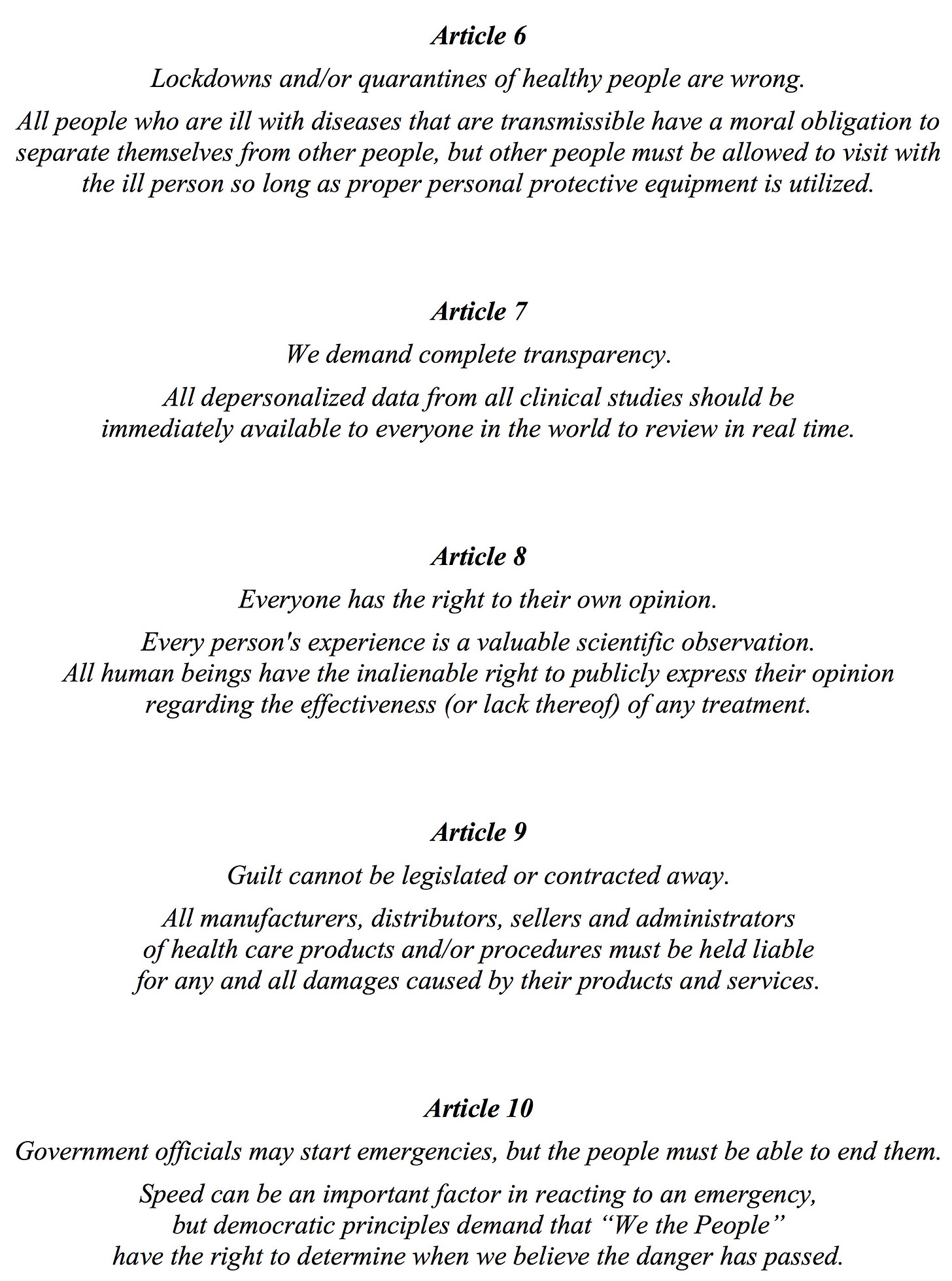
Contact me directly at 310-619-3055 if you wish to get involved in opposing the WHO's "Pandemic Treaty."
Wow, impressive and so important and terrifying. I am happy to discover you. I wil share widely. For the next 2 weeks I am intensely focused protecting the little ones from Spikeshots, I just posted n this minutes ago. I am part of a group with Toby Rogers working on various strategies, but our process and strategies we are developing can be applied to the WHOs Pandemic Treaty. I will call you . I am in DC. It occurs to me that many of the players may have their Icarus moment as they fly closer to the sun. We need to develop a system, structure to coordinate better. More later on that. My # is 202 775 0777 Thanks for doing this.